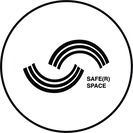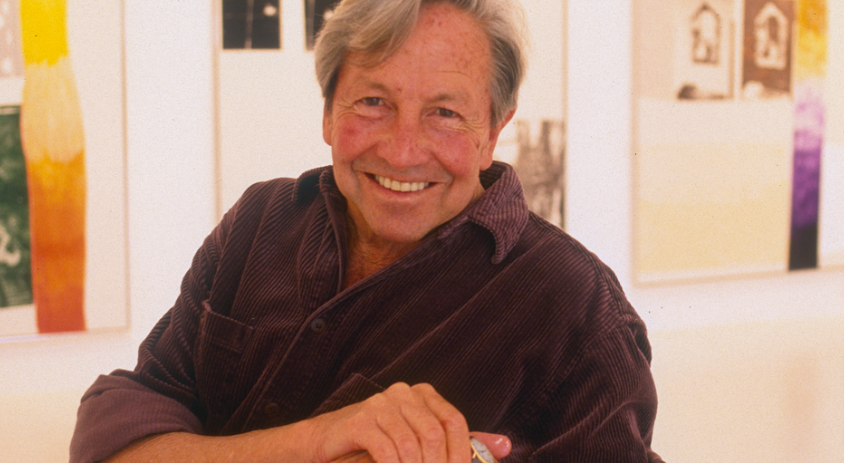
|
A list of upcoming deadlines for musician/dancer/artist grants, fellowships, and more. To be featured here, please email tabitha@artsforart.org NEW MUSIC USA | DEADLINE DECEMBER 15 | The New Music Creator Fund The Creator Fund offers grants to individual music creators who need support to get to the next stage of their creative practice. Learn more. 2023 QUEENS ART FUND | DEADLINE JANUARY 5 | Queens Arts Fund (QAF) offers project-based grants to Queens-based artists, artist collectives, and small non-profit organizations to support the local production of artwork and cultural programs that highlight, engage, and bolster the diverse communities of the Queens borough. Learn more.  RAUSCHENBERG MEDICAL EMERGENCY GRANTS | DEADLINE JANUARY 13 | This program provides one-time grants of up to $5,000 for recent unexpected medical, dental, and mental health emergencies to artists in financial need* who are practicing in the visual arts, film/video/electronic/digital arts, and choreography. Learn more. NYSCA/NYFA Artist Fellowship | DEADLINE JANUARY 25, 2023 | NYFA provides unrestricted grants of $8,000 to New York-based artists through the NYSCA/NYFA Artist Fellowship program. First launched in 1985, the program has provided over $30 million to artists in 15 disciplines at critical stages in their creative development. Learn more. New York State Seed Funding via Music Workers Alliance | GREAT news: thanks to MWA’s “Sharing the Risk Committee” and State Senator Brad Hoylman, working musicians now have access to New York State’s $200M Seed Money Grants. According to Empire State Development Corporation (ESDC) Senior VP Rafael Salaberrios: “If you were a working musician in 2018 [and onwards] you should have no difficulty applying for this grant." The minimum grant will be $5000. Learn more. FOUNDATION FOR CONTEMPORARY ARTS EMERGENCY GRANTS | ROLLING DEADLINE | Created in 1993 to further FCA's mission to encourage, sponsor, and promote work of a contemporary, experimental nature, Emergency Grants provide urgent funding for visual and performing artists who have sudden unanticipated opportunities to show their work in public and/or who incur unexpected expenses for projects close to completion with committed presentation dates. Learn more. NEW MUSIC USA REEL CHANGE FILM FUND | ROLLING DEADLINE | Reel Change is a five-year grants and mentorship program for composers of diverse backgrounds who have been marginalized in film composition. Learn more. THE AWESOME FOUNDATION | ROLLING DEADLINE; MONTHLY AWARDS | Each fully autonomous chapter supports awesome projects through micro-grants, usually given out monthly. These micro-grants, $1000 or the local equivalent, come out of pockets of the chapter's trustees and are given on a no-strings-attached basis to people and groups working on awesome projects. Learn more. NATIONAL DANCE PROJECT TRAVEL FUND | ROLLING DEADLINE | National Dance Project Travel Fund provides monetary assistance for U.S. based presenters, curatorial staff, and residency directors or for current NDP artist grantees to connect in person to explore feasibility of presenting NDP-funded works. Learn more. KICKSTARTER FORWARD FUNDS VIA CREATIVE CAPITAL | ROLLING DEADLINE | Kickstarter, Creative Capital, and Skoll Foundation have partnered to launch a $500,000 Creative Capital x Skoll Creator Fund that backs projects by Asian, Black, Indigenous, and Latinx creators on the crowdfunding platform. Funds will be awarded on an ongoing basis to creators with active projects across all of Kickstarter’s categories: Arts, Comics & Illustration, Design & Tech, Film, Food & Craft, Games, Music, and Publishing. Learn more. JOËLLE LÉANDRE to Receive Lifetime Achievement Award at the Vision Festival on June 13, 2023 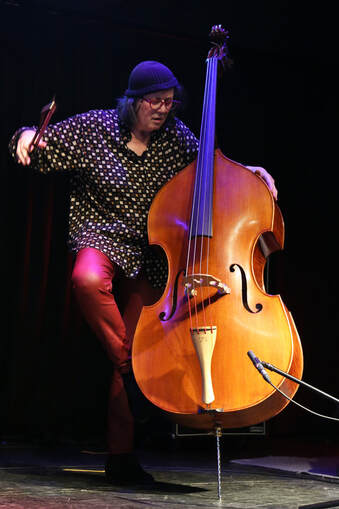 Full Festival Dates: June 13 to 18 Location: Roulette Intermedium, 509 Atlantic Avenue, Brooklyn, NY Arts for Art is proud to honor Joëlle Léandre, a master improviser and contrabassist with the Lifetime Achievement Award on June 13, 2023, opening night of the 27th Vision Festival at Roulette, in Brooklyn, NY. The Lifetime Achievement Award is presented annually to artists who have attained preeminent status in the world of FreeJazz. Starting with the 10th Vision Festival in 2005, Arts for Art has awarded a total of twenty artists over the past seventeen years. This year’s festival will take place June 13 to 18. It seems inevitable that Joëlle Léandre has become such an important figure in Free Jazz and Free Music. Her career as a musical thinker and bassist is in so many ways exceptional. From her early years, she performed with and composed for a range of highly acclaimed contemporary music ensembles, for theater, dance and voice. Much of her work is expressed in her highly developed and personal improvisational language. She encompasses all genres but remains her unique self, defiant and crafted with an intense discipline and drive, punctuated with her struggle for justice. Léandre has been paving a way that other powerfully creative women have followed. Joëlle Léandre has performed nine times at Vision Festival since 1999. On this special occasion celebrating her Lifetime Achievement, Ms. Léandre will present new work for the opening night of the festival. Her performance at Vision 2023 will draw further attention to a career that has already encompassed several lifetimes’ worth of achievements. About Joëlle Léandre A progenitor of European improvisation, bassist Joëlle Léandre’s ongoing career is an integral story in 20th and 21st century music. Leandre has amassed over 200 recordings, including numerous collaborations with fellow improvising luminaries such as Marilyn Crispell, Anthony Braxton, Myra Melford, William Parker, Irène Schweizer, Derek Bailey, Nicole Mitchell, and many more. From early in her career, the caliber of her talent attracted attention. Leandre has performed with Leornard Bernstein, Pierre Boulez, Giacinto Scelsi, as well as with Merce Cunnigham and John Cage. The latter two composed “Ryoanji” for Leandre specifically. Over 40 composers have dedicated pieces for her. Joëlle Léandre (born September 12, 1951) started playing music at age 8, initially playing the recorder before moving on to the piano. At 17, she studied at Conservatoire National Superieur de Musique in Paris. In Paris, Leandre encountered “the new thing,” musicians escaping America for fair compensation and proper recognition, including Roscoe Mitchell, Bill Dixon, Alan Silva, Art Ensemble of Chicago. In a 2020 interview with Ken Weiss in freejazzblog.org, she commented: “They gave me jubilation, everything was new. Everything was possible. This was my generation. They gave me the message to ‘be you.’” Léandre became a self-described “worker bee”, meeting and working with John Cage in 1972, writing music for dance in 1974, and leaving France for Buffalo, New York in 1976 to work with Morton Feldman. She met William Parker in 1979, and performed in a bass quartet with him, Peter Kowald, and Paul Rodgers. The following year, she moved to Berlin and performed with the European improvisers associated with the FMP label. When returning to America later that year, she met British guitarist Derek Bailey at the end of a Company concert in New York City, a close friend she regularly collaborated with. Léandre soon began organizing distinguished all women’s bands. These include European Women’s Improvising Group (EWIG), featuring herself, reedist Lindsay Cooper, vocalist Maggie Nicols, and pianist Irène Schweizer; Les Diaboliques, the trio with Irène Schweizer and Maggie Nicols, co-founded in 1990 and starting in 2016, The Tiger Trio with Nicole Mitchell and Myra Melford. These trailblazing groups played a vital role in the growing recognition and acclaim for women’s essential contributions to contemporary improvised music. About the Vision Festival In 1996 the First Annual Vision Festival took place at The Learning Alliance on Lafayette near Houston. The idea was to bring together luminaries from the different Avantgarde music scenes and, for the first time since the Sound Unity Festivals in the mid ‘80s, celebrate the important African American leaders of the music. Featuring artist Milford Graves, that first Vision Festival was unique in its multi-arts focus featuring poets such as Amiri Baraka, dancers such as Rod Rogers, and visual artists such as Jeff Schlanger, in collaboration with the music. Each year the Vision Festival also brought attention to issues of social justice by curating panel discussions, such as “Decolonizing the Music: Reclaiming the Power of Creative Music in Communities of Color” or “How Funding Affects Creative Choices.” In its totality the Vision Festival created and guaranteed a space for improvisation as a leading creative language, heralded as “one of New York’s most essential art events” (New York Times). In the current political and cultural climate, Arts for Art’s credo is felt more strongly than ever – using powerful music and art as expressions of commitment to life and justice. Past festival titles have included A Vision Against Violence, Avant Jazz For Peace, Studies in Freedom, The Revolution Continues, The Creative Option and Take a Stand. The Vision Festival continues to honor and amplify the careers of legendary artists that are too often under-appreciated, such as Fred Anderson, Kidd Jordan, Bill Dixon, Sam Rivers, Connie Crothers, and many others. About Arts for Art Founded in 1996, Arts for Art (AFA) is a New York City based tax exempt organization dedicated to the promotion and advancement of Black Multicultural Improvised Creative Arts -- an African American indigenous art form in which improvisation is principal. This art embodies music, dance, poetry and visual arts. It is recognized for its variety of highly developed and personalized improvisational languages. AFA works to preserve the legacy of FreeJazz, and to ensure a vital future through its re-imagination by new generations of artists. Spearheaded by the internationally renowned Vision Festival, AFA's programming brings together multiple generations of vibrant, diverse and highly skilled artists. To further our goals of diversity and accessibility, we foster education initiatives and produce events that build community amongst artists and audiences. Arts for Art Mission Arts for Art is dedicated to the exceptional creativity that originated in the African American multi-arts jazz culture that utilizes improvisation to express a larger, more positive dream of inclusion and freedom. About Roulette Intermedium Founded in 1978, Roulette’s mission is to support artists creating new and adventurous art in all disciplines by providing them with a venue and resources to realize their creative visions and to build an audience interested in the evolution of experimental art. AFA is currently running its Artists & Friends year-end fundraising campaign. Donations support artist fees and programming including the Vision Festival and lifetime achievement award. For more VISION FESTIVAL updates, keep your eyes on our homepage and follow us on social. Send press inquiries to tabitha@artsforart.org Photo above: Luciano Rossetti/ PHOCUS
jaimie breezy branch
1983-2022 jaimie branch Sep 26, 2022 memorial
The livestream of tonight's, Mon, Sep 26th memorial for jaimie branch will be available here.
​Please check back closer to the event. The official New York memorial began with a reception at Pioneer Works at 5 pm EST on Monday, September 26, in Red Hook, Brooklyn. The livestream began with the program at 6pm as follows: Centering by Chad Taylor Eulogy by Kate Branch Musical dedication by Jason Ajemian Walt Whitman’s “Song of Myself,†read by Will Yokowicz Musical dedication by Jason Nazary, Lester St. Louis, Fay Victor, Owen Stewart-Robertson, Angela Morris, Kenny Warren and Jake Henry Words by Kim Alpert Sing along to “Moon River†– ft. Sally Branch Intermission Performance of "leaves of glass," ft. Russell, Jenny, Griffin and Malcolm Branch, Lester St. Louis, Aquiles Navarro and Chris Williams Words by Piotr Orlov Musical dedication by William Parker, Patricia Nicholson, Chris Williams, Cooper-Moore and Hamid Drake Words by Scottie McNiece Musical dedication by Irreversible Quartet, ft. a sing along to "love song" ---- In addition to selected art work by jaimie, memories, and eulogies from family and friends, there will be live musical dedications from: The Branch Family; Fly or Die’s Chad Taylor, Jason Ajemian, and Lester St. Louis; Anteloper’s Jason Nazary; Arts for Art comrades Chris Williams, William Parker, Patricia Nicholson Parker, Cooper-Moore, and Hamid Drake; as well as her multi-faceted friends and collaborators from Irreversible Entanglements, Keir Neuringer, Aquiles Navarro, Luke Stewart, and Tcheser Holmes. If you'd like to attend the event in person, please RSVP on eventbrite. If you are attending in person, you’re going to want to arrive early: Bene Coopersmith, of the legendary @360recordshop in Red Hook, along with friends and family, are organizing a second line march through the neighborhood. The community will meet at 3 pm at The Record Shop, begin marching at 4 pm, and end at 5 pm at Pioneer Works. All are welcome to participate — bring your horn, your mom, your pots, your pans — we’ll be shutting down traffic and making a big, beautiful fucking ruckus.
Click the image above for AFA's jaimie branch playlist and blast breezy all day. We love you, jaimie.
"branch could conjure a world of personal expression with her trumpet, sounding brash and conflagratory one moment, bleary and contemplative the next. What she always conveyed with her horn, in any setting, was an absolute whole-body conviction. One reason she became a beloved linchpin of the creative music community over the last decade was this spirit of gutsy intensity. Her demeanor, by comparison, was often hilariously profane and ultracasual - qualities she hinted at with a preferred moniker, jaimie breezy branch (no caps)."
-Nate Chinen for NPR
jaimie on The Lot Radio
Some words from Patricia Nicholson:
jaimie branch is gone. It makes no sense. No one will be able to fill her space. She was like that, an irreplaceable creative force. A one-of-a-kind creative artist.
Below are some of her words. She gave them to me to speak about her bands at Vision. Here's jaimie's statement from back in 2018 : Fly or Die is an ethos of sorts, lemme explain: so, in this capital driven war machine, we gotta fly above to breathe, or risk getting sucked in or under. this music is supposed to transport, it's supposed to transform, it's gotta keep moving, be mutable, or it dies on the vine. i think about music the same way i think about life, keep pushing, keep tippin forward, keep laughing, ya gotta keep laughing. the guys in this band don't just play music, they lift it up. it lifts me up, and I hope it gets you too. xo, jb 2021 yoyoyoyoyoooyo here ya gogogogogogoogogogogo We FLY together or DIE apart. That's the crux of the vibe. There are forces out there that want to crush spirits, those who want to keep us separated to keep us from flocking up — we reject those forces and instead play harder, listen harder, love harder. This music is protest, this music is peace, this music transports and transforms. The guys in this band don't just play music, they lift the bandstand and take off, it lifts me up and it will lift you too if you let it. FLY or DIE baby, we either moving closer to life or closer to death. So sound the trumpets, flock up, and fly, we stronger togther. ~ j breezy 2022 Cest Trois What can we say? It's three burning souls converging. Danceable anti-fascist, free punk, improvised electronic creative moment music, all friends and regular collaborators, uplifting and upholding each other. in the music pushing each other to unfold in real time in a sonic landscape. A single candle alone can light up a room or burn down the house, we aim to burn bright. We light up the darkness that surrounds and confuses and burn down preconceptions. We put beauty back into the soil with heat and intention. Occasionally, on a great night, we burn down the house. What's needed in this moment - the reflection of the light refracting back into the body, the rhythm, the soul - all at once, at peace, in time, right now. Not hurriedly, not slow, but in tune and time with the universe. much love, j I will always think of jaimie with her arms spread wide, singing shouting and then she picks up her trumpet and played everything that she felt and we could all feel it. All we can do now, is remember. Remember her fierce commitment to her art. Remember and Love each other. Respect and Love the Music that inspired her and that inspires us, with some of the fierceness that she felt. With Love and Light and Music, Patricia Nicholson ​Arts for Art
NPR Obituary
Share your memories of jaimie
Leave a comment, spread love & love with spread
Arts for Art and The Vision Festival stand for ideals. We stand for Freedom & Justice
"All human life is sacred. A woman's life is sacred. A child's life is sacred. A fetus is not more worthy of our protection than its mother. Our humanity is at risk. Vote in the primaries. Vote for democracy. Vote for humanity. Act with humanity and compassion. Never give up. Our spirit is undying and filled with love. We must continuously stand up for compassion and justice. Honor women and children and all of life. Let us support each other as people of Vision and as people of compassion."
-Patricia Nicholson, Arts for Art Founder & Artistic Director
2022 Primary Election Dates, from time of publication forward
Vote early if you can! June 28, 2022
To view an interactive calendar that includes number of incumbents by party in each state's major races, and for other information regarding upcoming elections, please visit The New York Times' 2022 Midterm Primary Election Calendar. SHARE THIS TO SPREAD THE WORD! 6/22/2022 Vision Festival 2022 Conference: Legacies of Black Creative Music - A Path Towards JusticeRead Now Vision Festival 2022 Conference: Legacies of Black Creative Music - A Path Towards Justice Conference Handout Vision Festival 2022 Conference: Legacies of Black Creative Music - A Path Towards Justice
About the Event Organized by Patricia Nicholson (Arts for Art Founder, Artistic Director), Carter Mathes (author, Associate Professor of English at Rutgers University), Michael Heller (author, Associate Professor at University of Pittsburgh), Kehinde Alonge (PhD candidate in English at Rutgers University), and Danilo Powell-Lima - (Arts for Art Education Development Coordinator). Schedule 11am - A Legacy of Self-Determination Introduction by Michael Heller An examination of artist-initiated movements Moderated by Kehinde Alonge PANELISTS Ahmed Abdullah, Professor of Jazz at The New School, musician, on Sun Ra J.D. Parran, musician, composer, on the Black Artists Group of St. Louis Ras Moshe Burnett, activist, educator, musician, on Brooklyn based initiatives Patricia Nicholson, Arts for Art Founder, on Manhattan movements beginning in 1975 12:30pm Lunch Break 1:30pm - Black Music | White Business: The influence of institutions in Jazz/FreeJazz Introduction by Patricia Nicholson Moderated by Salim Washington - musician, author, educator PANELISTS Jean Cook, Board of Music Workers Alliance, musician, on music and the internet Gargi Shindé, former Director of Grant Programs, musician, on the role of foundations Mark Laver, Professor of Music at Grinnell College, on how capitalism and white supremacy are entangled in the exploitation of jazz musicians Patricia Nicholson, Arts for Art Founder, on resistance to African American FreeJazz in the market 3:30pm - Freedom & Spirituality Introduction by Carter Mathes The role of the Church, Spirituality & Freedom, and social justice’s integral role in shaping the music Moderated by Anthony Jermaine Ross-Allam, PhD candidate in Social Ethics at Union Theological Seminary PANELISTS Nicole Mitchell, Professor and Director of Jazz Studies at the University of Pittsburgh, musician, on afro-futurism and freedom William Parker, author, educator, activist, and musician, on where the music comes from and how music functions in society Hamid Drake, musician, on spirituality in life & music Legacies of Black Creative Music - A Path Towards Justice was supported by a grant from Henry Luce Foundation. Special Thanks to Rutgers University - New Brunswick and the University of Pittsburgh for their support. Watch this conference on YouTube For Children Affected by Gun Violence
A poem by Patricia Nicholson
Shown: Young adults creating a mural in Pittsburgh.
We cannot stand by while they gun us down
We cannot stand by while they gun down our children How many too many How Many Too Many The prayers of the hypocrites rub salt in the wounds of we who grieve These people who cry for their rite of guns Claim control of women's bodies Out of respect for the life of the unborn while they fail to protect the Child They are stewing in their hate Let us Resist Resist Never Give Up We offer up music to heal spirits and souls Music filled with love outrage and compassion Music for the Children
A very special selection of songs, curated by Patricia Nicholson & Eriq Robinson.
PLEASE NOTE: The Soundcloud playlist below autoplays. To take it off and explore the individual tracks shown below, hit PAUSE on the Soundcloud player. Also note, not all selections in the master list are in the Soundcloud playlist (for copyright reasons). All songs included here have been submitted by the artists themselves for this project and all selections are featured here with permission.
Issues accessing the Soundcloud playlist emebdded here? Click this SECRET LINK.
Music for the Children - Full List
“PARK: Observe, Strut” by Cooper-Moore Unreleased (c) 2022 geney. ashton Created -performed by Cooper-Moore
Where is Home - Sam Newsome & Lucian Ban from “The Romanian - American Jazz Suite” (Jazzaway Records 2008) with Sam Newsome (soprano saxophone) and Lucian Ban (Piano)
Time for Change - Nicole Mitchell from “Hope, Future and Destiny” (Dreamtime 2004), with Nicole Mitchell’s Black Earth Ensemble: Nicole Mitchell (flute, vocals, composition), David Boykin (tenor sax), Corey Wilkes (trumpet), Bryan Nichols (piano), Josh Abrams (bass), Arveeayl Ra (drumset) Juan Pablo Carletti( “interferences” and tongue drum)
Recall - William Parker from the album “Migration of Silence Into and Out of The Tone World” (Centering Records 2021) with William Parker (bass) and Raina Sokolov Gonzalez (voice).
With the Morning, Hope - Steve Swell from the album "Slammin' the Infinite" (Cadence Jazz Records, 2003) with Sabir Mateen (flute), Matt Heyner (bass), Klaus Kugel (drums).
Is This a Joke - Ava Mendoza from “Unnatural Ways” (New Atlantis 2015) with Ava Mendoza (guitar), Dominique Leone (keys), and Nick Tamburro (drums).
Broken Earth - William Parker from the album "Flower In a Stained-Glass Window & The Blinking of The Ear" with William Parker (bass), Leena Conquest (vocals), Steve Swell (trombone), Abraham Mennen (tenor sax), Isaiah Parker (piano), Kesivan Naidoo (drums).
Nature Boy (Radio Version) - Dave Sewelson from the album "Smooth, FreeJazz" (Mahakala Music 2022) with Mike Neer (lap steel guitar), Bernice "Boom Boom" Brooks (drums), Dave Hofstra (bass).
To Be Alone - Mara Rosenbloom from “Songs from the Ground” with Mara Rosenbloom (solo piano).
Seashore - Fay Victor from the album “Absinthe & Vermouth” (Greene Avenue Music 2013) with Fay Victor (voice), Anders Nilsson (guitar), Ken Filiano (double bass).
Alpha Omega - Tracie Morris & Elliott Sharp from "Morrisharp Duality" (zOaR Records 2021) with Tracie Morris (voice), and Elliott Sharp (guitar).
3Billie - Brandon Lopez Unreleased with Brandon Lopez (bass).
memories for jake - Qire from “Black Sheep People” (2014) with Eriq Robinson (synths, electronics).
Soledad Saboteur - Anteloper from “Tour Beats Vol. 1” (International Anthem 2020) with Jaimie Branch (trumpet, synths), Jason Nazary (drums/synths), and “Young Solé” (vocals).
Moon Hunger - Joshua Abrams from Represencing (Eremite Records 2020) with Joshua Abrams (guimbri, harmonium, ms20, composition), and David Boykin (tenor saxophone).
Without Habits - Leo Chang (vocalnori and piri)
Don’t Go Crazy - Oliver Lake from “Jump Up” (Gramavision 1982) with Oliver Lake (saxophone), Pheeroan Aklaff (drums), Jerome Harris (synth), Brandon Ross (guitar), Billy Grant (bass)
To Be - Luke Stewart Unreleased
Relief - Mara Rosenbloom from “Songs from the Ground” with Mara Rosenbloom (solo piano).
Hover - Gerald Cleaver from “Adjust” (Fresh Sound New Talent (2001) with Gerald Cleaver (drums), Reid Anderson (Bass), Andrew Bishop (soprano sax), Ben Monder (Guitar), Craig Taborn (Keyboards).
As we ramp up for The Vision Festival in New York City next month, Arts for Art has created a very special livestream event for you. On TUESDAY, MAY 24TH @ 7 PM EASTERN TIME, you can support Arts for Art & The Vision Festival by purchasing tickets for:
Celebrating Wadada Leo Smith & Oliver Lake: A Special Livestream Fundraiser GET YOUR TICKETS - LIVESTREAM ONLY, STREAMING WORLDWIDE This limited livestream-only event features Wadada Leo Smith & Oliver Lake talking about their life’s work and performing a short solo each. You will get an exclusive behind-the-scenes look at two titans of FreeJazz, in performance and conversation, before they accept their Vision Festival Lifetime Achievement Awards on June 21 and June 26, respectively. Please get your tickets at Eventbrite and donate generously to benefit Arts for Art/ The Vision Festival & our 2022 Lifetime Achievement Award honorees! For more information on The Vision Festival, please visit artsforart.org/vision April is Jazz History Month/ Jazz Appreciation Month. In celebration, we've asked our resident armchair historian, Bill Mazza, to share the most essential Free Jazz literature picks. With every new #JazzHistoryMonth social media post, we will expand this list of links to purchase pages for referenced works, provided they are still in print. To follow along in real time, follow @artsforart on Instagram. 1960s Free Jazz Lit kicks off in the 1960s as the writing on jazz and its surrounding culture by Black authors makes it into print for the first time, notably by radical author and activist Amiri Baraka (LeRoi Jones) with this paired collection of essays Blues People: The Negro Experience in White America and the Music That Developed From It (1963) and Black Music (1966) — texts that, along with Baraka’s plays, helped kick off the Black Arts Movement. 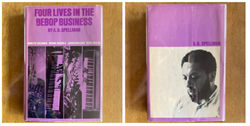 That same year of 1966 also saw publication of A.B. Spellman’s seminal Four Lives In The Bebop Business: Ornette Coleman, Herbie Nichols, Jackie McLean, and Cecil Taylor, notable not only for Spellman’s examination of the then-controversial musics of artists like Coleman and Taylor, but also for it’s mix of biography leaning heavily on the artist’s own words and the insight into the social, professional, and economic challenges the life presented for even the most notable voices in the scene. 1960s BOOK LIST: Blues People Four Jazz Lives Black Music 1970s edition, a decade of liberation movements, outspoken artists like Archie Shepp and Bill Dixon, and Free Jazz Lit was in full swing. 1970 saw both Valerie Wilmer’s “Jazz People,” whose format helped establish oral history as a primary methodology for Free Jazz writing, and Frank Kofsky’s “Black Nationalism and the Revolution In Music (later expanded as “John Coltrane and the Jazz Revolution of the 1960s”), with Kofsky approaching the music and industry from a Marxist perspective. In 1971 the influential music criticism meets cultural studies “FreeJazz / Black Power” by Philippe Carles and Jean-Louis Comolli was published in France but not translated into English until 2014. Also transformative, musician / author Bill Cole’s re-defining biography “John Coltrane” (1976), outlined connections between Coltrane’s compositions (and studies) and African cosmology, helping complicate Coltrane historically as part of the African diaspora. In 1977 Valerie Wilmer’s groundbreaking, “As Serious As Your Life,” also leaned heavily on oral history but also offered cogent context for the shifts birthing the often misunderstood and maligned ‘free’ music. Wilmer’s book is also perhaps the first to apply feminist theory to the scene by including a chapter on how the mostly male scene was often subsidized anonymously by partners, most often women, whose incomes helped offset the economic realities of an industry offering little support. Finally, drummer Arthur Taylor’s, “Notes and Tones: Musician to Musician Interviews" (1977) added to the lively conversation. 1970s BOOK LIST: Jazz People John Coltrane and the Jazz Revolution of the 1960s Free Jazz / Black Power John Coltrane Notes and Tones Collectives and Cooperatives Liberation was the zeitgeist in the 1960s. Civil rights, economic downturn, anti-colonialism, anti-imperialism, all helped shape a revolutionary energy that carried over to the arts and resulting in an explosion of self-determination projects, largely led by artists of color. Alongside the Black Arts movement in NYC, Dixon's "October Revolution in Jazz "(1964) presented the 'new jazz music' over four days of music & panels (an obvious precursor to the Vision Festival), and led to the short-lived Jazz Composers Guild. NYC also saw DIY community centers support the arts, such as the pan-African cultural center The East (1969), subject of the doc "The Sun Rises In The East," to be screened June 20 at the Vision Festival. In Chicago 1965, the Association for the Advancement of Creative Musicians formed, with a history detailed by Lewis in "A Power Stronger Than Itself" (2008). "The Freedom Principle: Experiments in Art and Music" (2011) was published for an exhibit at MCA for the AACM's 50th Anniversary; and Steinbeck's "Message to Our Folks" (2017) about The Art Ensemble of Chicago, offer more. BAG (The Black Artists' Group, 1968 to 1972) is covered in "'Point from which creation begins: The Black Artists' Group of St. Louis" by Looker (2004), an org co-founded by Vision LifeTime Achievement Honoree Oliver Lake. The rise of Horace Tapscott's Pan African People's Arkestra in 1961 led to the co-creation of UGMA in 1963, a legendary community of musician practitioners and educators centered around Tapscott, and documented in Tapscott's autobiography "Songs of the Unsung (2001) and in "The Dark Tree" by Isoardi (2006). COLLECTIVES & COOPERATIVES BOOK LIST: A Power Stronger Than Itself The Freedom Principle: Experiments in Art and Music 1965 to Now Message To Our Folks Point from which creation begins: The Black Artists’ Group of St. Louis Songs of the Unsung The Dark Tree Loft Jazz With perfect subjectivity, let’s give special attention to “Loft Jazz: Improvising New York in the 1970s” by Michael Heller (2017, University of California Press) who — full disclosure — was on staff with AFA / Vision while researching some of this book. Or, as William Parker blurbs on the back cover, “A long-awaited, in-depth study of the loft music phenomena of the 1970s. Based on firsthand accounts, it tells the story of musicians, largely African American, in this time of intense creativity and of self-determination. It is a story that needs to be told as the musical evolution, largely ignored, continues into the present.”. Heller’s excellent book, along with the histories of various overlapping and interlaced artist cooperatives, collectives, and community centers across the US, foregrounds the development of music intimately tied not only to the resurgent popularity of Free Jazz, but also to the fabrics of better documented popular (often white) music to follow in the punk rock, art rock and indie rock scenes of the 80s, and/or the experimental chamber music scene. Whether tracing the history of DIY music and art in post-war US, or the shift in dominance from light-opera to blues vocals throughout the 20th century, or the broadening acceptance of dissonance and an expansion from the 12-tone scale, these paths are rooted in Jazz, and most often lead up through branches of free jazz and creative music. Heller’s book helps map this journey. LOFT JAZZ BOOK LIST: Loft Jazz: Improvising New York in the 1970s Biography Even before critical writing on Free Jazz (and even Just Jazz) started to expand in the 1960s, a lot of the history of the music was mostly available through biography and auto-biography. Biography continues to be an excellent source for piecing together the context of the music’s development, though much like the scene itself up through the new millennium, the publishing centers almost exclusively on men in the field. Which hopefully will change to reflect this millennium's hard-won progress in that area... Here are some favorites in order of publication: 01. "Forces in Motion: Anthony Braxton and the Meta-reality of Creative Music: Interviews and Tour Notes, England 1985" by Graham Lock (1988)by 02. "Ornette Coleman: A Harmolodic Life" by John Litweiler (1992) 03. "Space Is The Place: The Lives And Times Of Sun Ra," John F. Szwed (1998) 04. "Dixonia: A Bio-Discography of Bill Dixon" by Ben Young (1998) 05. "The William Parker A work in progress," by Rick Lopez (2014) 06. "Music to Silence to Music: A Biography of Henry Grimes" by Barbara Ina Frenz (2015) 07. "Universal Tonality: The Life and Music of William Parker" by Cisco Bradly (2021) BONUS, not Free Jazz but adjacent: 08. "I Put a Spell On You: The Autobiography of Nina Simone" (1991) 09. "The Last Holiday: A Memoir" by Gil Scott-Heron (2012) *Links for each book are above; click on book titles. Jazz Women No secret that Jazz / Free Jazz fell behind other musical genres in gender parity both recorded and on-stage. Therefore this post veers off the Free Jazz focus to writings by and about women in Jazz. As women’s liberation and 2nd wave feminism set out to reclaim women’s history, music was included. As early as the 1960s we saw a resurfacing of women traditional jazz and classic blues artists like Ida Cox, Alberta Hunter, Billie Pierce, Victoria Spivey, and Lil Green, and revival projects like Rosetta Records, founded in 1979 by jazz historian and feminist Rosetta Reitz. By the 1980s we began to see historical & contemporary writing by and about women in jazz. Here's a sample: 1. “Jazzwomen: 1900 to the present” (my computer just autocorrected “jazzwomen” to “jazzmen.” Twice. BTW) by Sally Placksin (1982) 2. “Stormy Weather: The music and Lives of a Century of Jazzwomen” Linda Dahl (1984) — also a biographer of Mary Lou Williams 3. “Mama Said There’d Be Days Like This: My Life In The Jazz World,” by Val Wilmer (1989), wherein the author/photographer talks about being a white, lesbian covering the Free Jazz scene 4. “Mad At Miles: A Blackwoman’s Guide to Truth,” by Pearl Cleage (1990). Not technically a jazz book, this Cleage Group pub uses the jazz world as one starting point to discuss Black feminism 5. “Madame Jazz: Contemporary Women Instrumentalists” Leslie Gourse (1995) 6. “Giving Birth to Sound: Women in Creative Music” co-edited by Renate Da Rin and William Parker (2015) 7 & 8. “The Art Of Being True: M³ Anthology of Essays," edited by Jordannah Elizabeth (2022). Also not a 'jazz' book but an anthology "archive of writings that takes control of the narrative with regard to the work of underrepresented musicians" including free jazz and improv musicians. *View all covers in our original Instagram post *Book links are above; click on book titles. Please note, not all titles are linked because some books are out of print. Musicians as Authors We've already seen a smattering of books by musicians and artists in the scene, whether texts by Amiri Baraka, Frank Kofsky, Arthur Taylor, and Valerie Wilmer in previous posts. Many Free Jazz practitioners are not 'only' musicians, and have multi-arts practices: visual art, writing, performance, film, movement. Many write consistently for outlets from liner notes to criticism, and many end up published in or as books. Here's a sample of favorites: 1. Free Spirits - Annals of the Insurgent Imagination, a surrealist collection co-edited by Jayne Cortez (and five others), and including writing by Cortez, and musicians including Amina Baraka, Bill Cole, and Ornette Coleman among others. The rest of these books will be more self explanatory. 2. Anthony Braxton - Triaxium Writings : Vol 1-3 (1985) 3. William Parker - who owns music? (2006) and William Parker - The Mayor of Punkville (1999) 4. Intervalss Book 2: More Poems & Words of Musicians (2001), with writing my musicians complied by poet Steven Dalachinsky and Herschel Silverman, with layout by Yuko Otomo. 5. Fred Ho - Wicked Theory, Naked Practice (2009) 6. Sun Ra - The Planet is Doomed (2011) 7. Joe Morris - Perpetual Frontier: The Properties of Free Music (2012) *Book links are above; click on book titles. Please note, not all titles are linked because some books are out of print. The 80s-on, and new writing about the new music Not even the music industry was immune to the nostalgic conservatism of the Reagan era, as the business of jazz turned away from the experimental, and toward familiar sounds of bop, hard bop, and 'classic' jazz. However, the literature about Free Jazz—and it’s relevance both domestically and as part of a global or ‘world’ music—kept growing, as did both listeners, and generations of young musicians increasing exposed to the music though performances by the elders and via digital archives and reissues of even the most obscure, often self-released, titles. Here’s a too-short list of favorite books from the last four decades working to meet the music on its own terms. I find the best writing on Free Jazz tends to move away from traditional criticism, exploring social context and new methodologies. Only five titles listed here - please share your own favorites books in the comments. 1. "The Freedom Principle: Jazz After 1958" by John Litweiler (1984), important critical historic look at the lineage of post-Bop experimentation, following the innovations of the elders. 2. "Avant-Garde Jazz Musicians: Performing 'Out There' " by David G. Such (1993), taking a deep dive into interviews and performance practice with musicians in the "out jazz" scene, as well as cultural context, to broaden conversations. 3. "Blutopia: Visions of the Future and Revisions of the Past in the Work of Sun Ra, Duke Ellington, and Anthony Braxton" by Graham Lock (1999) 4. "The Fierce Urgency of Now: Improvisation, Rights, and the Ethics of Cocreation" by Daniel Fischlin, Ajay Heble, George Lipsitz (2013), collaboratively written about relationship between improvisational practice and the dynamics of human rights struggles. 5. "Epistrophies: Jazz and the Literary Imagination" by Brent Hayes Edwards (2017), wherein the author examines the written or spoken textual aspects of jazz that are often overlooked, including scat, liner notes, poetry, and song titles, to complexify meaning in jazz practice. *Book links are above; click on book titles. Please note, not all titles are linked because some books are out of print. The Poets: First Generation (See all book photos for this post) The Free Jazz movement has been multi-arts since it's inception. We've covered artists cooperatives and collectives where musicians interacted freely with dancers, poets, and visual artists. But this post looks at some of that first generation of jazz-linked authors identified primarily as writers. Amiri Baraka often wove in and out of music whether talking horns in "Am/Trak" (1979), or "In the Tradition (for Black Arthur Blythe) (1980), or "Later Trane" (2003), or this 2001 brochure for a performance of the band "Blue Ark" Jayne Cortez recorded 9 albums of poetry music in addition to her published work. Pictured are "Scarifications" (1973), "Mouth on Paper" (1977), and two later in-print collections "Jazz Fan Looks Back" (2002) and Jayne Cortez: On the Imperial Highway (2009) Ted Joans - surrealist, Beat, musician, and painter - published "Black Pow-Wow" (1969) and "A Black Manifesto in Jazz Poetry and Prose" (1971) Nikki Giovanni - Black Arts Movement member, activist, and recording artist published "Recreation" (1970) with poems written for Aretha Franklin and Nina Simone. Sonia Sanchez, another Black Arts Movement member started publishing in the late 60s but pictured here is "Does Your House Have Lions" (1998), whose title is taken from a conversation between Joel Dorn and Rahsaan Roland Kirk. Sekou Sunidata published "FREE!" in 1977 but is perhaps best known as an organizer, educator, recording artist and collaborator including his long-working association with Craig Harris. Anne Waldman continues to shape poetry and performance with both the cadence of her readings and her ongoing live and recorded collaborations with musicians. Pictured here is "Fast Speaking Woman" (1974), the year the New York School poet co-founded the influential Jack Kerouac School of Disembodied Poets. *Book links are above; click on book titles. Please note, not all titles are linked because some books are out of print. Vision Poets And, to follow up on the post from yesterday (of first and second gen Free Jazz poets), here's a mixtape of poets who've appeared at recent Vision Festivals (and if you aren't featured here it's not because we don't love you, it's just a space and time thing- aren't relativities the worst?) 1. Yoko Otomo - two examples from this longtime Vision poet and visual artist, "Pink" (2007, Sisyphus Press), and "Study" (2013, Ugly Duckling Presse), cover designed by the author 2. Steven Dalachinsky, poet, performer, critic, visual artist, "Trust Fund Babies" featuring collage art by Dalachinsky on the cover (2011, Unlikely Books) 3. Patricia Spears Jones, "A Lucent Fire" (2015, White Pine Press) 4. Fred Moten, "Black and Blur" (2017, Duke University Press), a collection of interrelated essays by the poet and academic 5. Latasha N. Nevada Diggs, "Twerk" (2013, Balladonna*) by the interdisciplinary poet and sound artist 6. David Mills, poet and playwright, "The Sudden Country" (2013, Main Street Rag) 7. Thomas Sayers Ellis, poet, photographer, and founding member of the band Heroes are Gang Leaders. Shown here is "Crank Shaped Notes" (2021, Arrowsmith Smith Press) 8. Camae Ayewa (Moor Mother), poet, musician, and activist, and co-leader of Irreversible Entanglements with "Fetish Bones" (2016, The Afrofuturist Affair/House of Future Sciences Books) and "Analog Fluids" (2019, The Afrofuturist Affair/House of Future Sciences Books) *Book links are above; click on book titles. Please note, not all titles are linked because some books are out of print. #JazzHistoryMonth / #JazzAppreciationMonth comes to a close on this International Jazz Day (Apr 30) with a list of AFA's own #FreeJazz books. Here is Bill Mazza's list of favorite VISION PUBLICATIONS
Here are three Arts for Art / Vision publications from the new millennium featuring the poetry, essays, photography, and artwork of #VisionFestival artists. We've included pics of the table of contents for each of the three pubs, put together by volunteer editors and artists as listed in the pictures shown here. First is "Vision" from 2001 which, in addition to a history of festival, and the program for Vision Festival 6, includes interviews with Patricia Nicholson, Joseph Jarman, Roy Campbell, Fred Anderson, Karen Borca, Jemeel Moondoc, Joe McPhee, and Steve Dalachinsky. Up next is "Visions 2004" which features poetry, artwork, and vision statements from the artists of Vision Festival 9, including Yuko Otomo, Jeff Schlanger, Sabir Mateen, "Kidd" Jordan, Billy Bang, Lee Mixashawn Rozie, Pheralyn Dove, Henry Grimes, Lawrence D. "Butch" Morris, Lois Eby, Tina Seligman, Amiri Baraka, David Budbill, William Parker, and Reggie Workman (in addition to many of the artists from "Vision" in 2001). The 2005 publication "Vision Festival Peace" features contributions from many of the artists in the first two pubs with the additions of Rob Brown, David S. Ware, Oliver Lake, Terry Jenoure, Lucio Poozzi, Kazuko Miyamoto, Felicia Norton, Victor Melamed, Whit Dickey, Eddie Gale, Ijeoma Chine Thomas, Oluyemi Thomas, Jorgo Schaefer, Marilyn Sontag, Edwin Torres, Alain Kirili, Scott Currie, and Michael Heller. Truly unique publications collecting together the words of luminaries from Vision history, and the multi-arts community that is Arts for Art! International friends and followers of Arts for Art on social media have been inquiring about Virtual/ Livestream ticketing availability for the Vision Festival: A Light in Darkness (June 21-26, 2022). Daily Livestream passes are available on Eventbrite for just $15 + $2.55 USD in Eventbrite fees. If you can't make it to NYC this summer or you'd simply prefer to attend the Vision Festival remotely this year, you can review daily lineups and click through to get your Livestream Tickets using the links provided below. See in-person day pass tickets via Eventbrite here. > Download the 2022 Vision Festival Program we are handing out at Roulette and The Clemente. You can also view it at the bottom of this post! Now, here are the day-by-day breakdowns and direct links to all Livestream ticketing pages: Day 1- JUNE 21 | Wadada Leo Smith: Celebrating a Lifetime of Achievement FEATURING: Wadada Leo Smith - trumpet / Pheeroan akLaff – drums / Thulani Davis - poet with RedKoral Quartet: Shalini Vijayan – violin / Mona Tian – violin / Andrew McIntosh – viola / Ashley Walters – cello Purple Kikuyu: Erika Dohi – piano / Sylvie Courvoisier – piano / Shalini Vijayan – violin / Mona Tian – violin / Andrew McIntosh – viola / Ashley Walters – cello Day 2- JUNE 22 | Matthew Shipp Quartet / Staircase in Space / Fearon + McGinnis / Heart Trio / Rothenberg + Courvoisier + Drake FEATURING: Matthew Shipp Quartet | Matthew Shipp – piano / Jason Kao Hwang – violin / Michael Bisio – bass / Jay Rosen – drums Staircase in Space | Whit Dickey – drums / Rob Brown – alto sax / Mat Maneri – viola / Brandon Lopez – bass Davalois Fearon – dance / Mike McGinnis – sax Heart Trio | William Parker – bass, percussion / Hamid Drake – drums, frame drum / Cooper-Moore – homemade instruments Ned Rothenberg – reeds / Sylvie Courvoisier – piano / Hamid Drake – drums Day 3- JUNE 23 | Yoshiko Chuma and The School of Hard Knocks / C’est Trois / Unnameable Element / Red Lily Quartet / Nicole Mitchell Ensemble FEATURING: Yoshiko Chuma, Miriam Parker, Emily Mare Pope - dance / Jason Kao Hwang – violin / Steve Swell – trombone / Christopher Mclntyre – trombone jaimie branch – trumpet/ Luke Stewart – bass / Tcheser Holmes – drums Leo Chang – voice, piri/ Chris Williams – trumpet / Lester St. Louis – cello / Miriam Parker – movement James Brandon Lewis – tenor sax / Kirk Knuffke – cornet / William Parker – bass / Chad Taylor – drums Nicole Mitchell - flutes, composition / Ken Filiano – bass / Joshua White - piano / Val Jeanty – electronics, percussion / Terri Lyne Carrington – drums Day 4- JUNE 24 | Isaiah Collier & The Chosen Few / SPARKS / Ahmed Abdullah & Francisco Mora Catlett / Angelica Sanchez Trio / Fay Victor’s SoundNoiseFUNK FEATURING: Isaiah Collier / Eri Yamamoto / William Parker /Ahmed Abdullah / Francisco Mora Catlett /Angelica Sanchez / Fay Victor / Sam Newsome ... and many others! Day 5- JUNE 25 | Music is Mine Vision Ensemble / Jason Kao Hwang / Knife & Rose / Watershed / Monique Ngozi Nri & Ahmed Abdullah / Natural Information Society FEATURING: AFA's student band, "Music is Mine" directed by William Parker, PLUS Hamid Drake, Jason Kao Hwang, Patricia Nicholson, Steve Swell, Karen Borca, Monique Ngozi Nri & Ahmed Abdullah, Joshua Abrams ...and many others! Day 6- Oliver Lake: Celebrating a Lifetime of Achievement FEATURING: Oliver Lake, Andrew Cyrille, JD Parran, World Saxophone Quartet...and many others! Questions? Email us at info@artsforart.org The 2022 Vision Festival Program we are handing out at Roulette and The Clemente: 3/31/2022 Announcing the FULL SCHEDULE AND LINEUP OF PERFORMERS for Vision Festival 26, “A Light in Darkness"Read Now
Read the official Press Release and schedule announcement in the Blog Post below.
If you're looking for the FULL Vision Festival schedule, ticketing & venue information click: 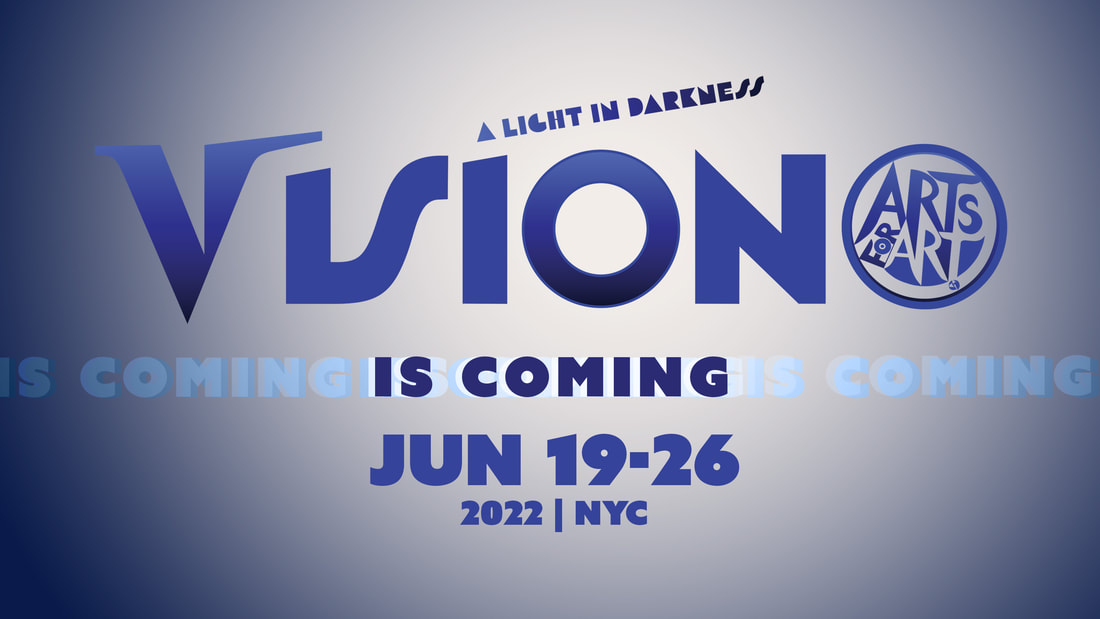
“New York’s ICONIC free-jazz festival…keeping its central focus on radical improvisation and political engagement.” - The New York Times
“...one of New York’s most essential art events.”- The New York Times NEW YORK CITY | Announcing the FULL SCHEDULE AND LINEUP OF PERFORMERS for Vision Festival 26, “A Light in Darkness” - bringing together the bright, beautiful voices of hundreds of artists in the vibrant Arts for Art (AFA) community to showcase the FreeJazz aesthetic of creative improvisation. AFA’s Artists are prepared to BE THE LIGHT with sights and sounds of hope and peace. In addition to the exciting lineup of performers across six nights and two New York City venues, this year The Vision Festival will celebrate the Lifetime Achievement of not one, but TWO titans of FreeJazz: Wadada Leo Smith and Oliver Lake. Mr. Smith and Mr. Lake have curated their evenings to share with us what they feel is most important to their legacies. On the opening night of the festival (June 21st, 2022), Wadada Leo Smith will present new works that celebrate the heroism of Flight 93 In “Pennsylvania’s Sky: No Greater Love - A Remembrance of Their Beauty & Courage.” Mr. Smith’s performance will serve to punctuate 80 years, in a career full of enough achievements for several lifetimes. On the closing night of The Vision Festival (June 26th, 2022), AFA pays tribute to Oliver Lake’s legacy--from his early years as a co-founder of Black Arts Group (BAG) in St. Louis--with a multi-discipline work by JD Parran, as well as Oliver Lake’s own new piece entitled “Justice.” The final night of The Vision Festival will also feature a special performance of the World Saxophone Quartet. Mr. Smith and Mr. Lake join a venerable pantheon of FreeJazz pioneers in receiving the Vision Festival Lifetime Achievement Award including Amina Claudine Myers, Andrew Cyrille, Peter Brotzmann, Cooper-Moore, Milford Graves, Sam Rivers and Kidd Jordan. Celebrating boundless improvisation and community in the diverse languages of FreeJazz with social justice has been AFA’s credo since 1996. Acknowledging and holding space for the African American voices that defined this aesthetic has been our commitment and our struggle. The artists change, the world changes, but the message remains and AFA continues to bring together varied generations of boundary-breaking, FreeJazz arts that are expressive of the important African American creative lineage and multiculturalism that the genre has embraced. As such, the lineup is varied and inclusive. The artists define the genre. The genre does not define the artist. The theme of this years’ festival is “A Light In Darkness.” This is a quote from a song written by William Parker in the late 1970s and “A Light” is what the Artist is called to be as people across the globe struggle to stay safe while fear and tyranny walk hand in hand, and justice and freedom seem to be losing ground. The bright light of Creativity with Compassion is what will be our guide; as it becomes safer and we become smarter about how to navigate our new normal, we’ll gather to shine the light on our shared Vision for a better world. About the Vision Festival In 1996 the First Annual Vision Festival took place at The Learning Alliance on Lafayette Street near Houston Street in NYC. The idea was to bring together luminaries from the different avant-garde music scenes and, for the first time since the Sound Unity Festivals in the mid ‘80s, celebrate the important African American leaders of the music. Featuring artist Milford Graves, that first Vision Festival was unique in its multi-arts focus featuring poets such as Amiri Baraka, dancers such as Rod Rogers, and visual artists such as Jeff Schlanger, in collaboration with the music. Each year the Vision Festival also brought attention to issues of social justice by curating panel discussions, such as “Decolonizing the Music: Reclaiming the Power of Creative Music in Communities of Color” and “How Funding Affects Creative Choices.” The Vision Festival has created and guaranteed a space for improvisation as a leading creative language, and has been heralded as “one of New York’s most essential art events” (New York Times). The Vision Festival continues to honor and amplify the careers of legendary artists who are too often under-appreciated, such as aforementioned 2022 honorees Wadada Leo Smith and Oliver Lake, as well as Fred Anderson, Kidd Jordan, Bill Dixon, Sam Rivers, Connie Crothers, and many others. About Arts For Art Since its inception in 1996, the nonprofit Arts for Art (AFA) and its founder and Artistic Director Patricia Nicholson Parker have advocated for human rights and justice, and in support of FreeJazz improvised music and art. FreeJazz is recognized for its variety of highly developed and personalized improvisational languages. AFA works to preserve the legacy of FreeJazz through its multi-arts programming, as well as ensuring the vital future for the improvised arts through their reimagining by new generations of artists. AFA works to ensure that future through music education and mentoring programs offered free to those in need. About Lifetime Achievement Honoree, Wadada Leo Smith Trumpeter, multi-instrumentalist and composer Wadada Leo Smith is one of the most boldly original and influential artists of his time. Transcending the bounds of genre or idiom, he distinctly defines his music, tirelessly inventive in both sound and approach, as "Creative Music." For the last five decades, Smith has been a member of the legendary AACM collective, pivotal in its wide-open perspectives on music and art in general. He has carried those all-embracing concepts into his own work, expanding upon them in myriad ways. READ MORE. About Lifetime Achievement Honoree, Oliver Lake In 1968, inspired by Association for the Advancement of Creative Music and the Black Arts Movement, Oliver Lake co-founded the famed Black Artist Group (BAG) to bring together young black creatives of St. Louis, find spaces and venues for their creativity, and opportunity for multi-disciplined collaborations. Mr. Lake helped manage BAG, bringing together musicians, actors, poets, playwrights, painters, and dancers. Regarding BAG, Mr. Lake stated in 2014: “There is no separation in what we did. It’s all one thing. And that’s part of the philosophy of the Black Artist Group. And it ended up being my philosophy. I am open to all forms.” READ MORE. VISION FESTIVAL DATES ARE June 19-20- Film Screenings June 21st - 25th: Performances at Roulette 509 Atlantic Avenue, Brooklyn, NY 11217 Starting at 7 PM June 26th: Performances at La Plaza at The Clemente (outdoors) 114 Norfolk Street, New York, NY 10002 Starting at 5 PM #Vision26 | #VisionFestival | #Vision2022 MORE:
|
Details
AuthorThe Vision Festival is the world's premier showcase of Free Jazz music, dance, poetry, and visual art. Archives
December 2022
Categories
All
|
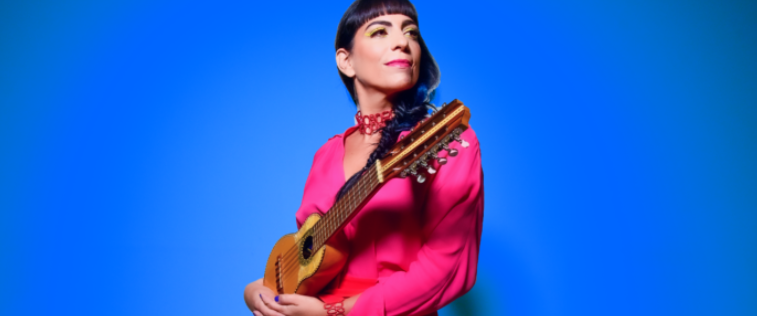
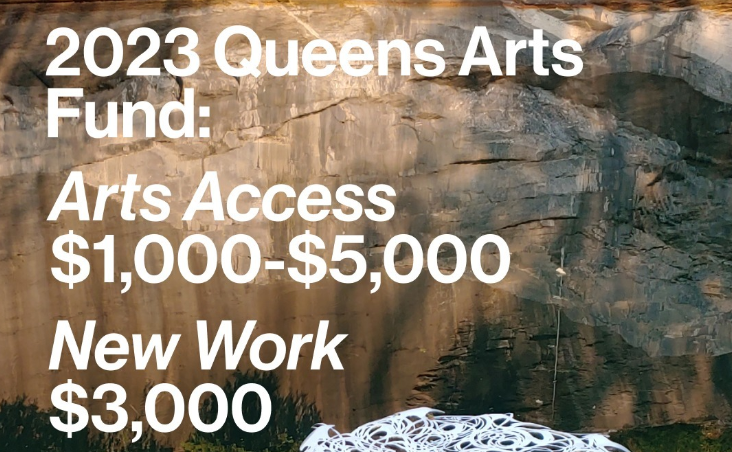
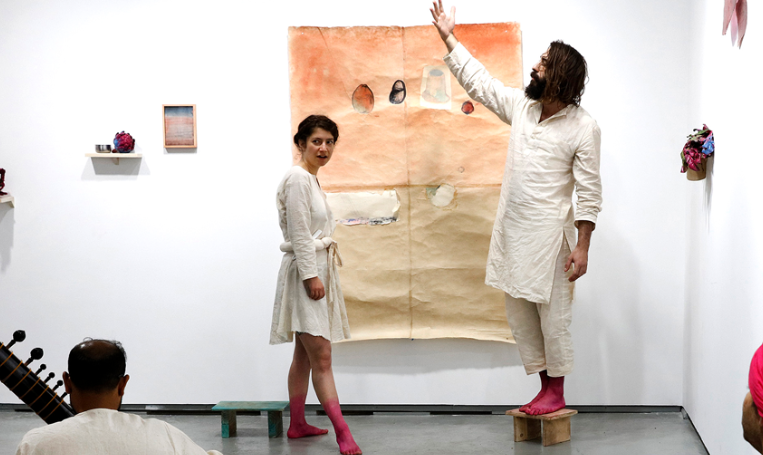

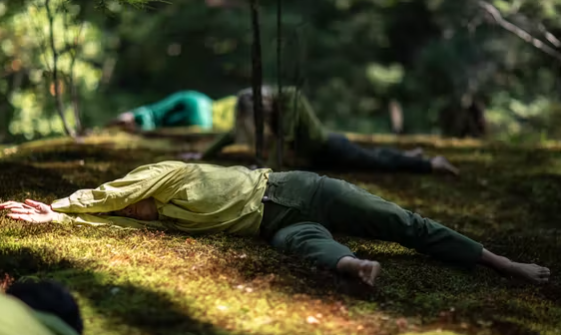
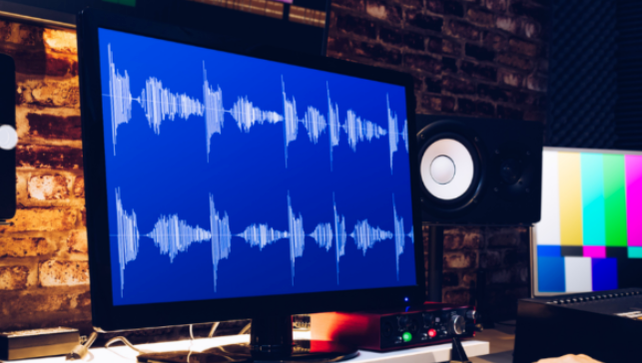
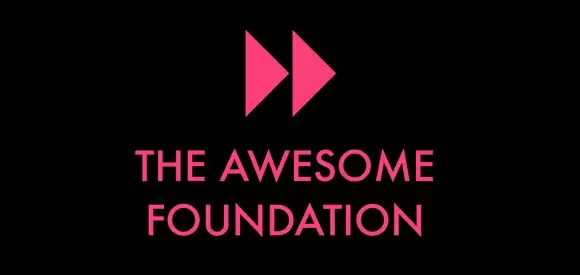
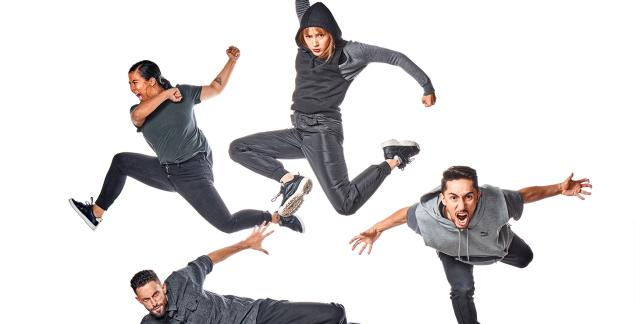
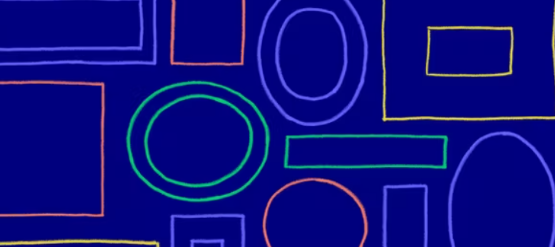
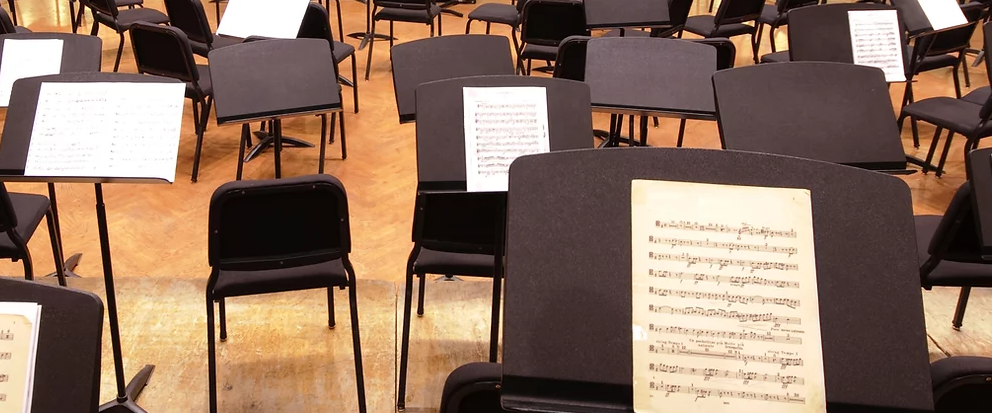

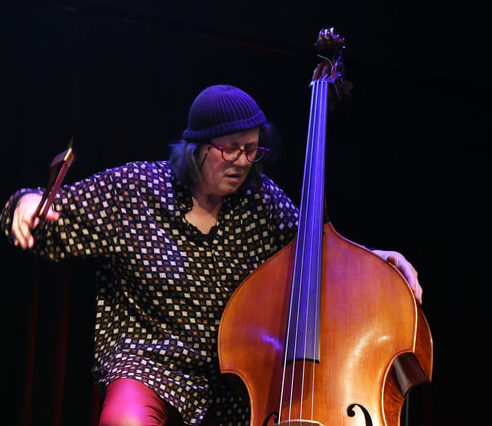
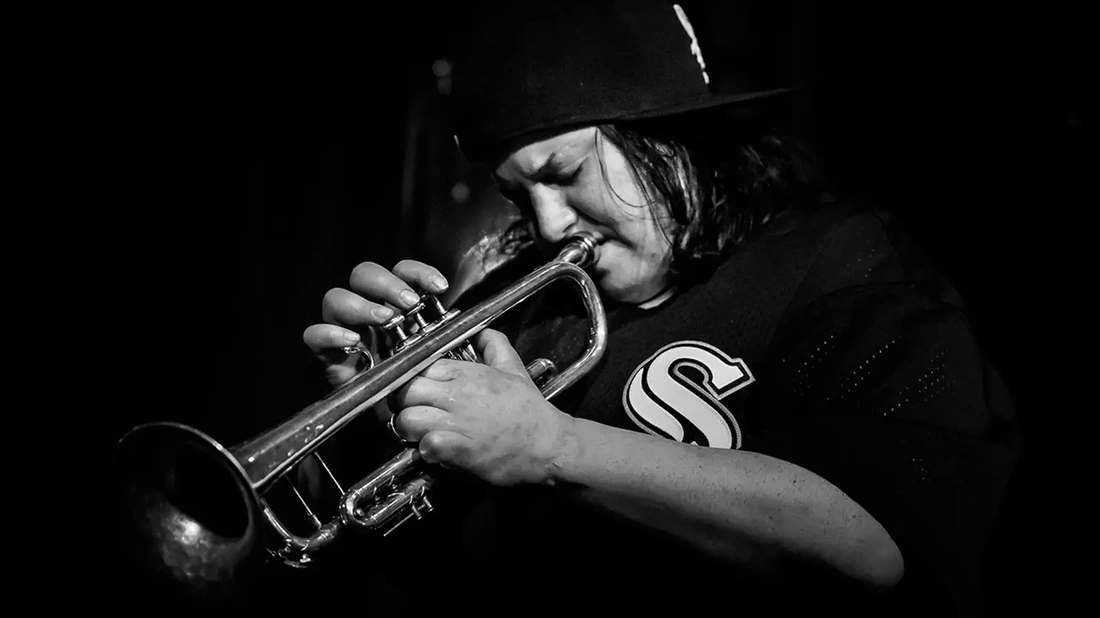
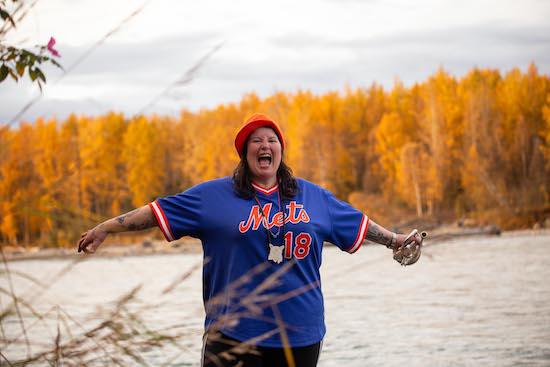
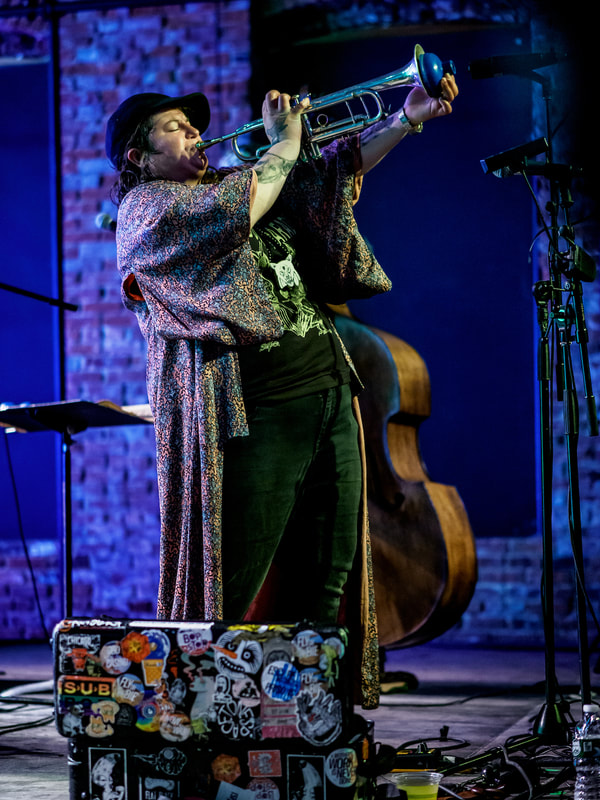
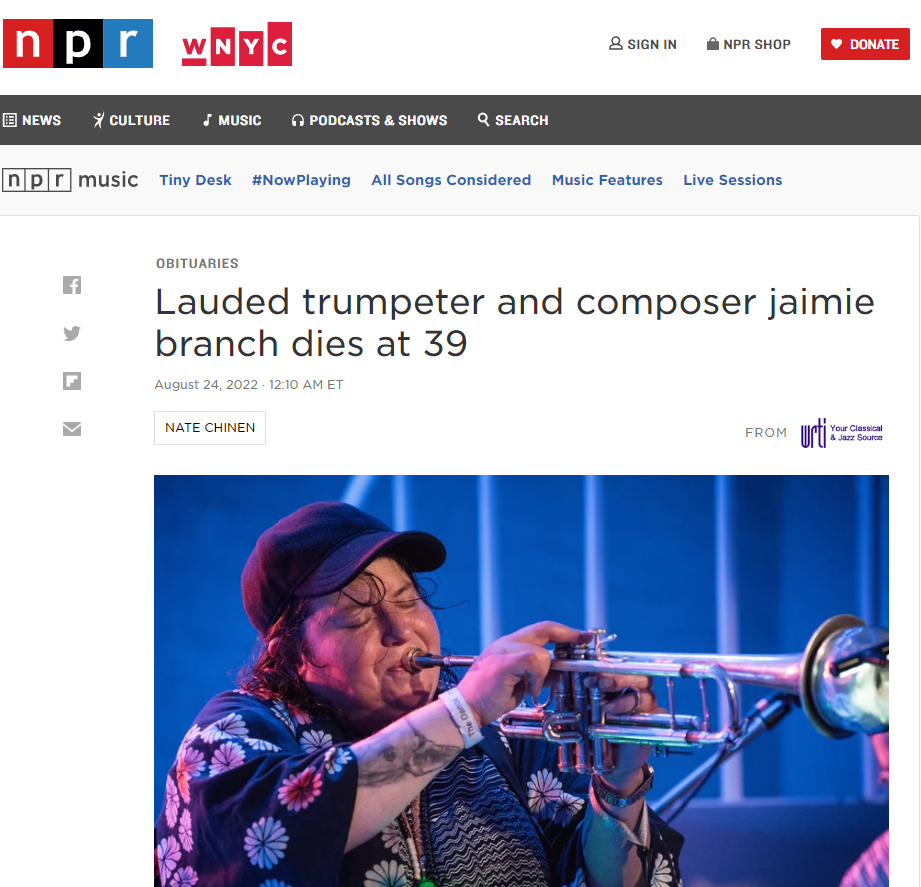
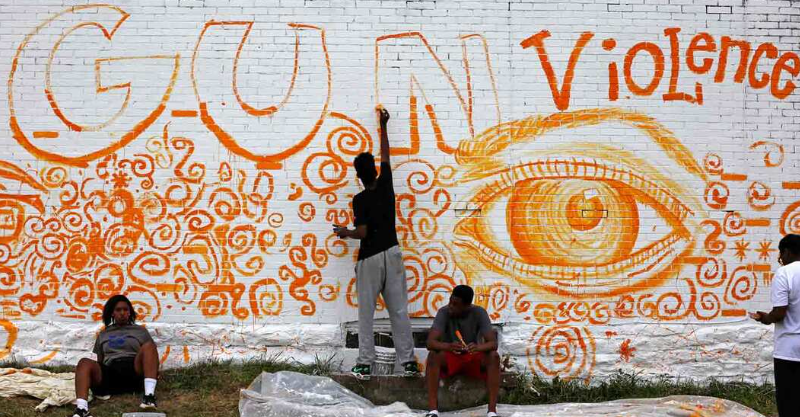
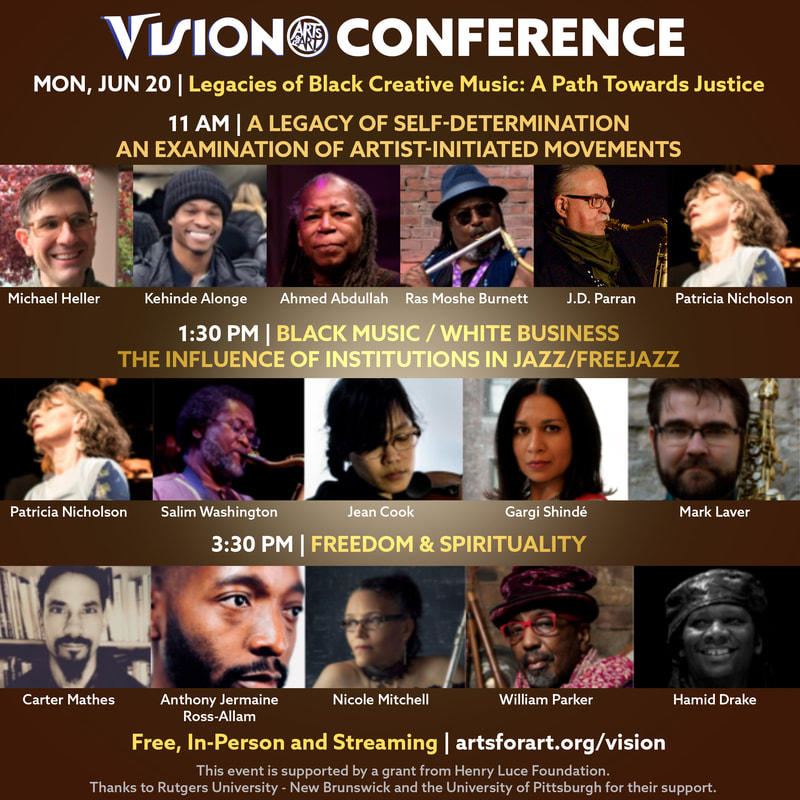
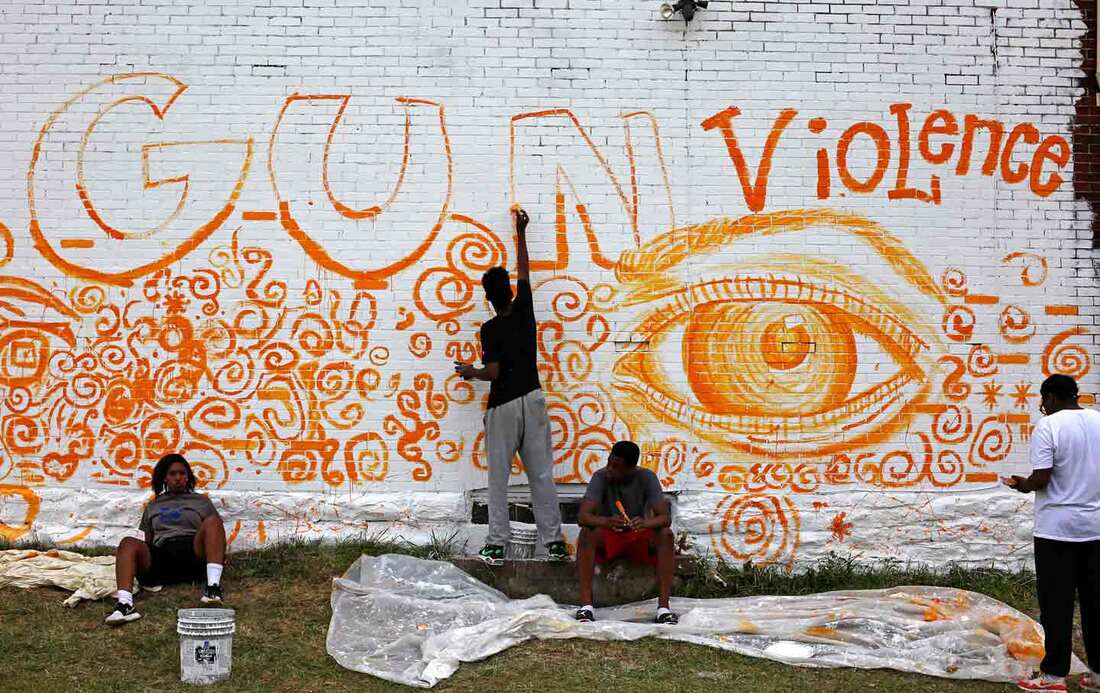
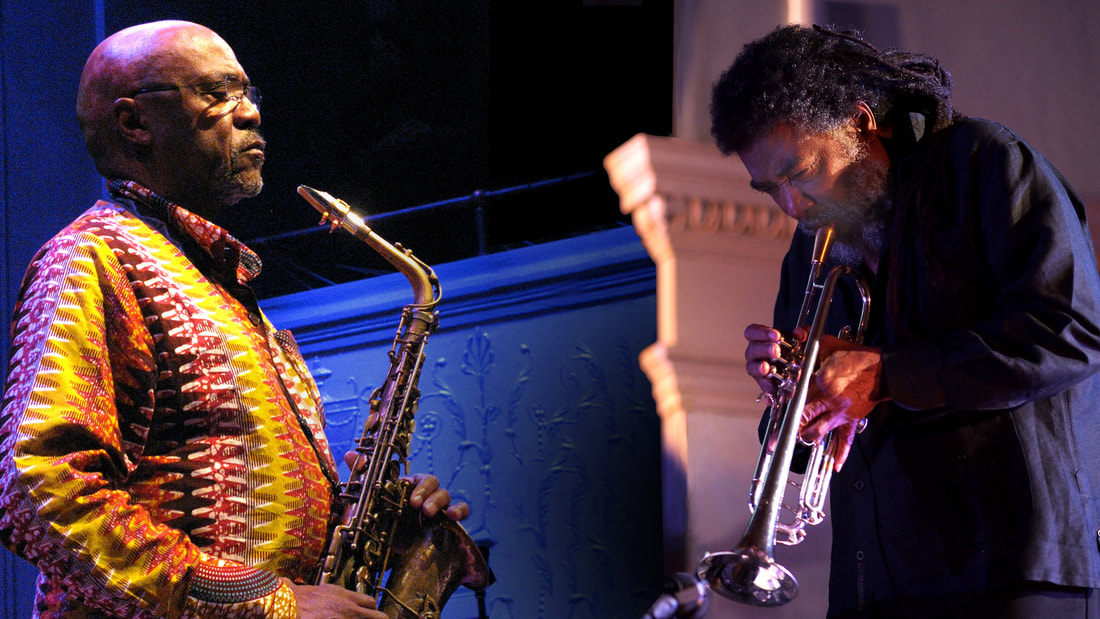
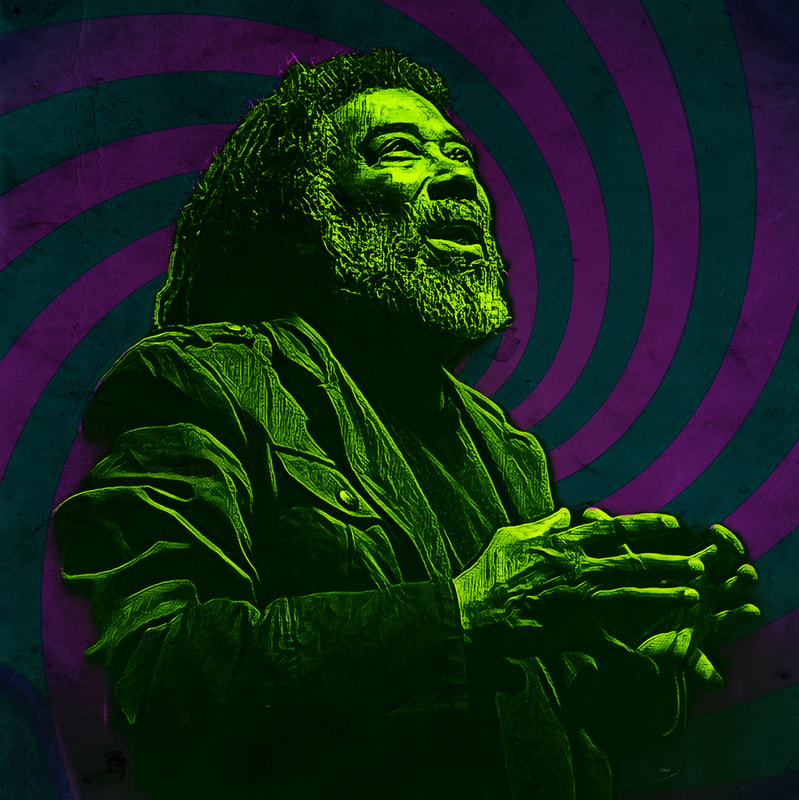

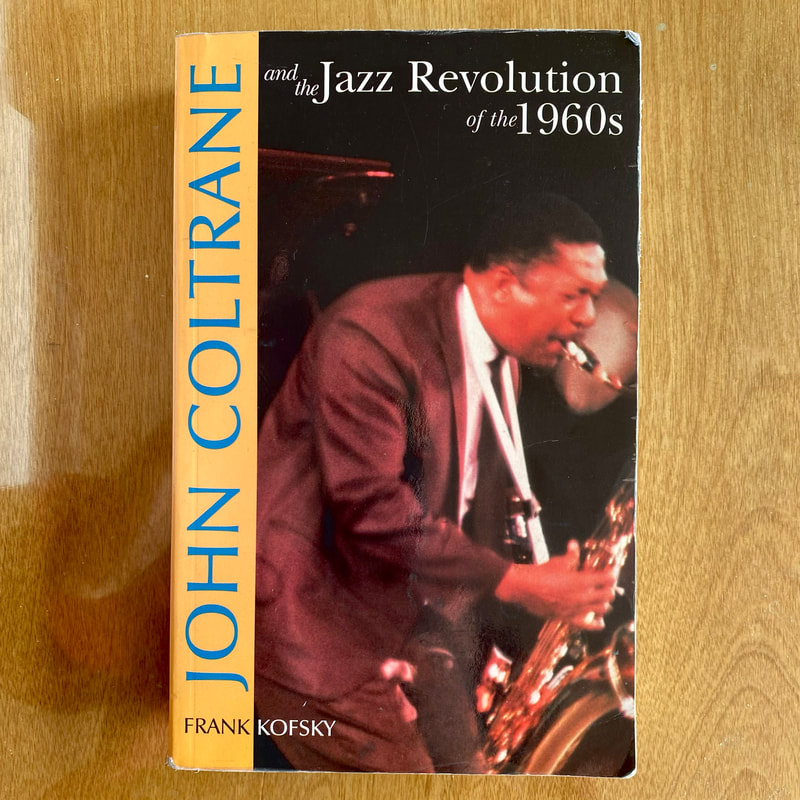


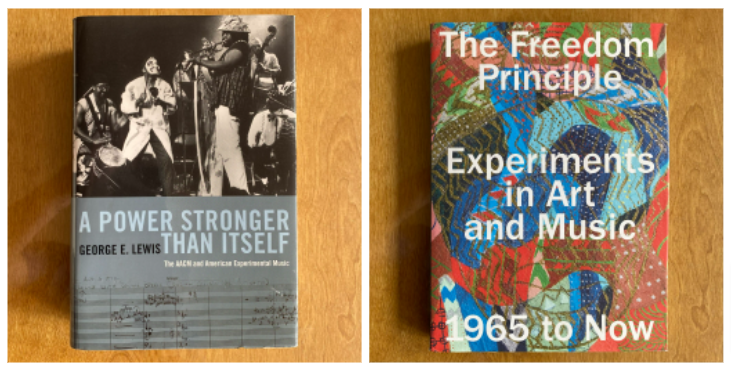
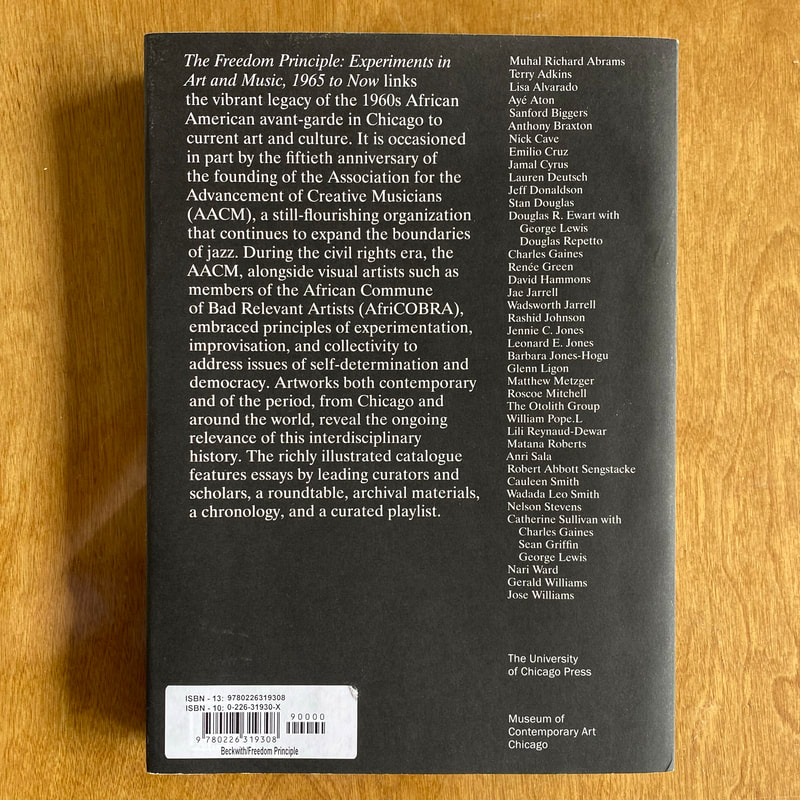
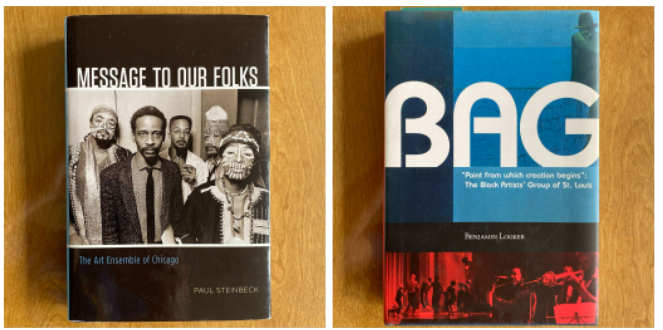
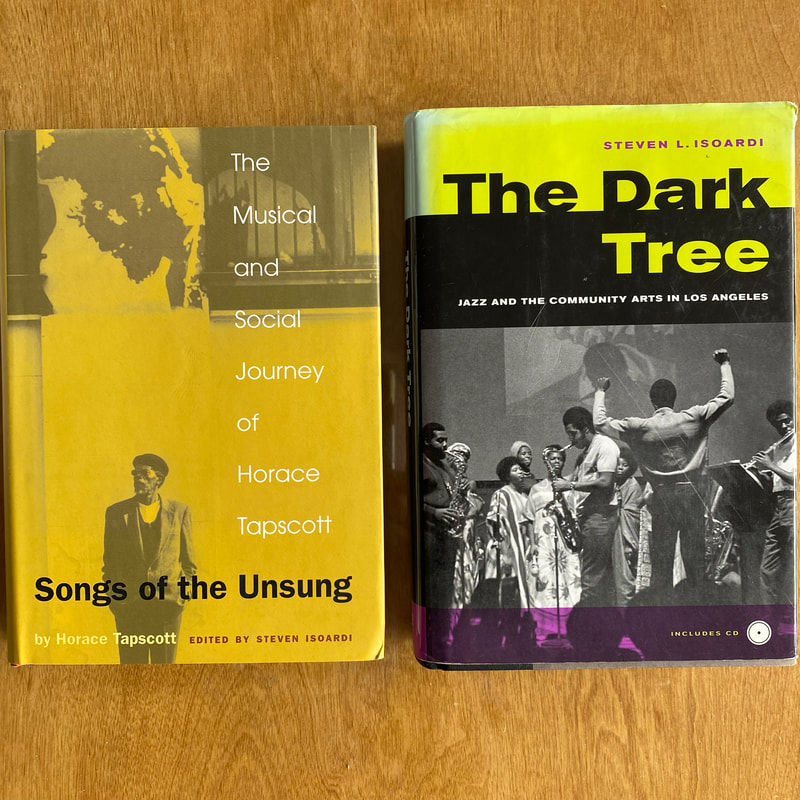
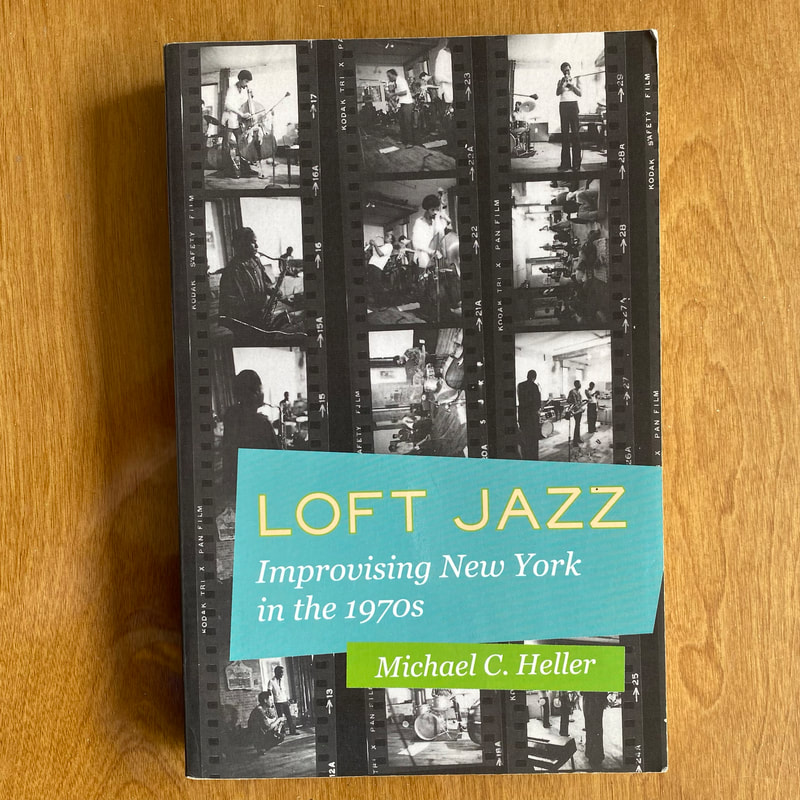
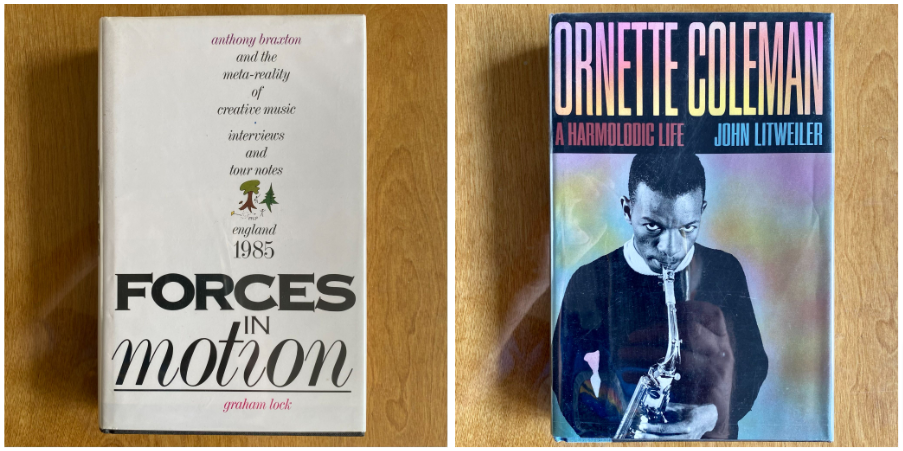


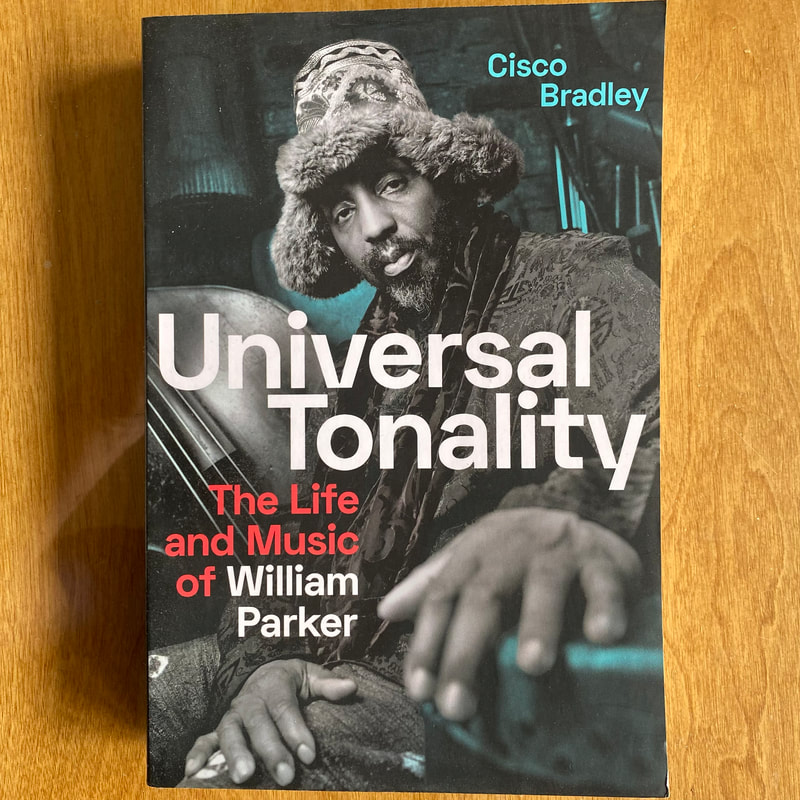
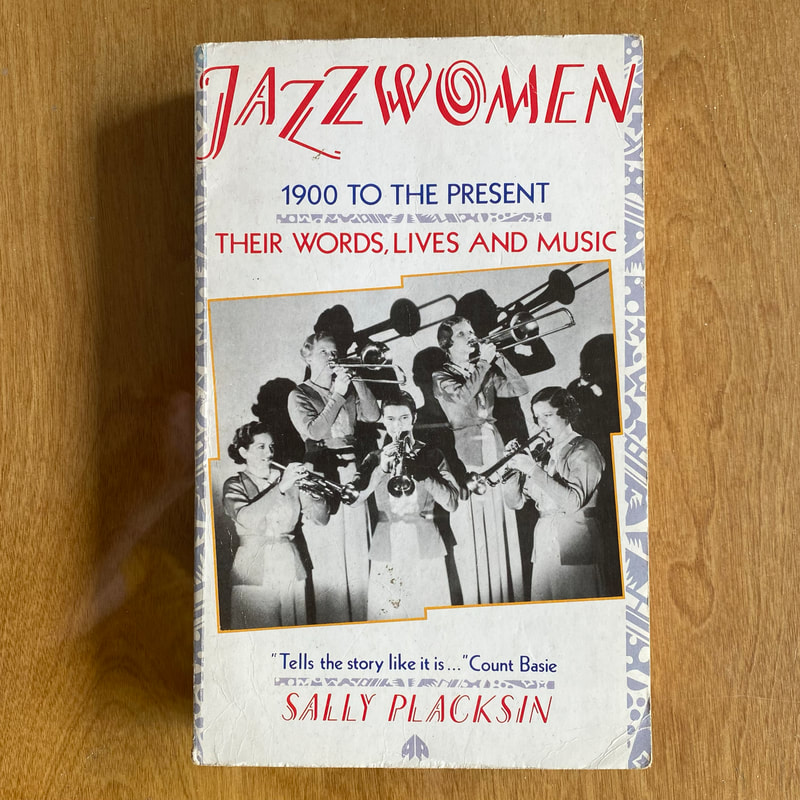
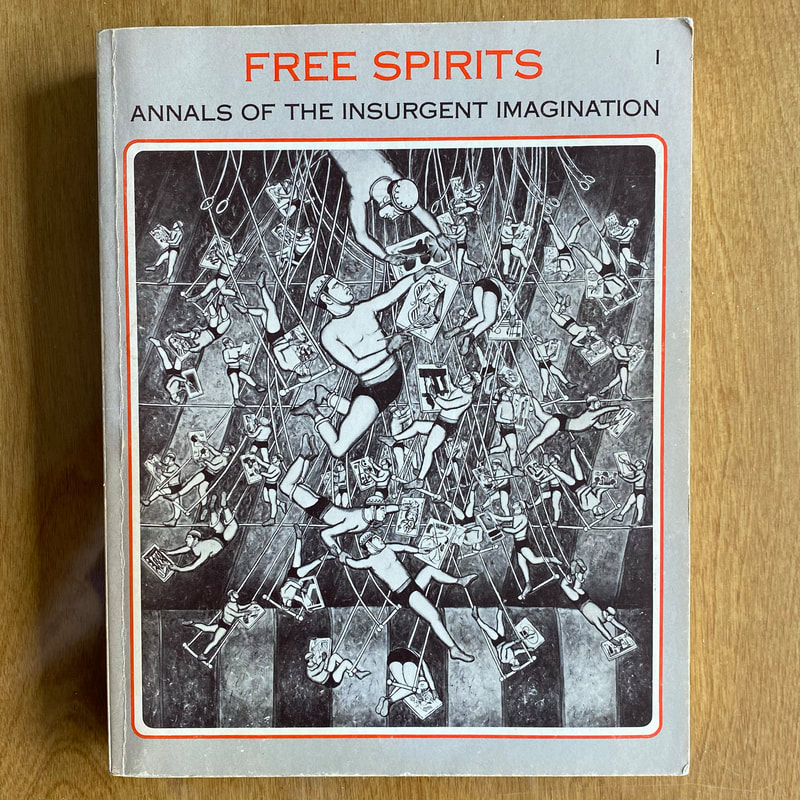
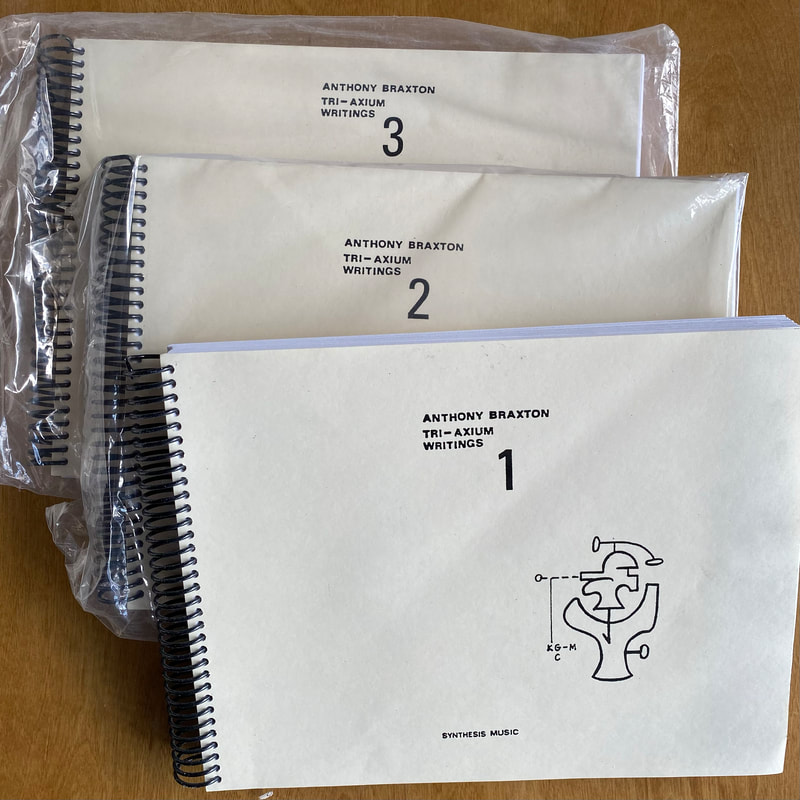
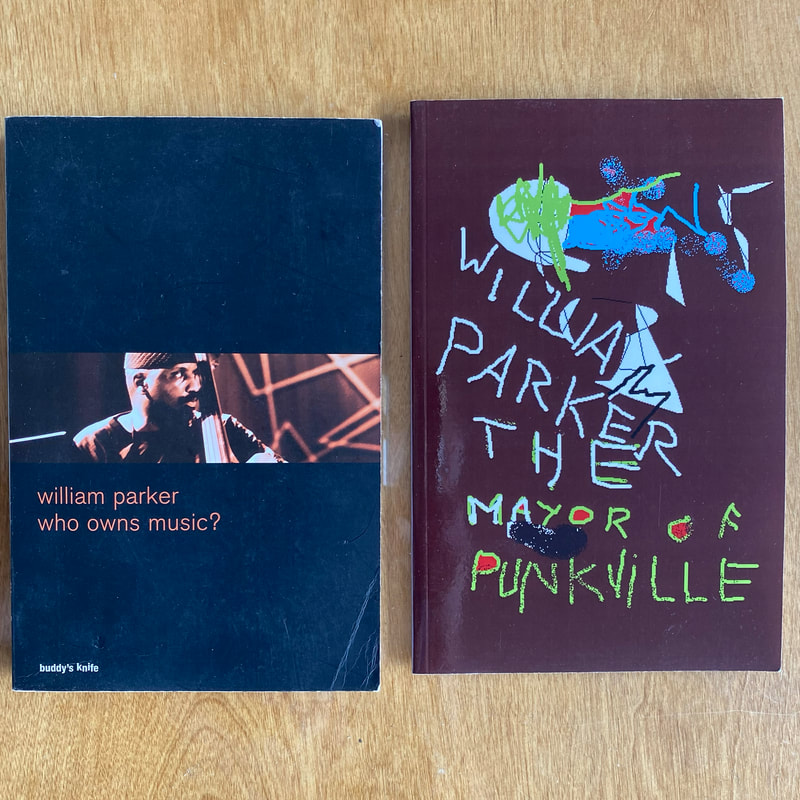
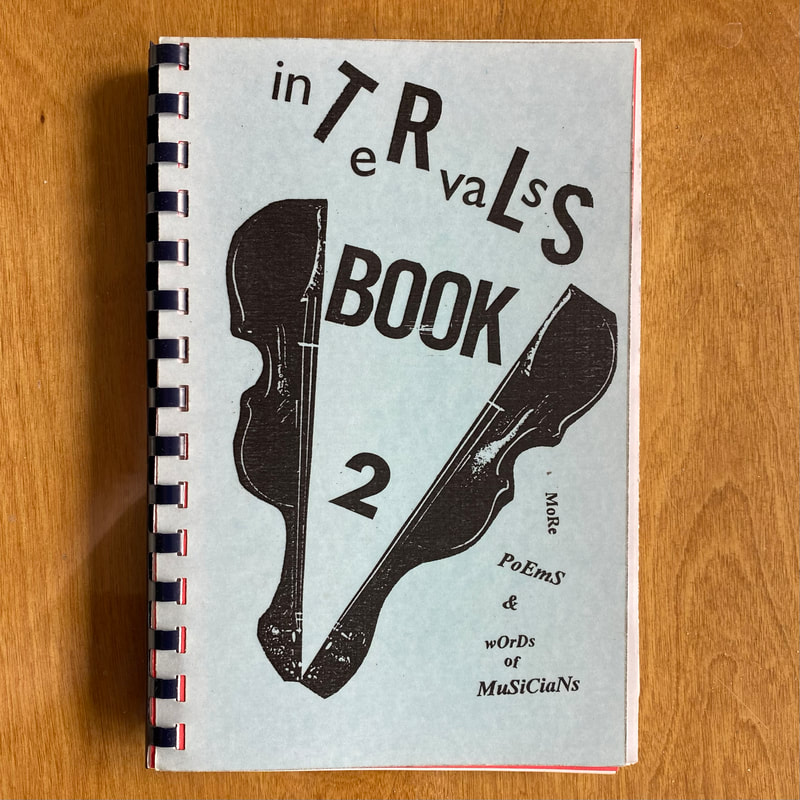
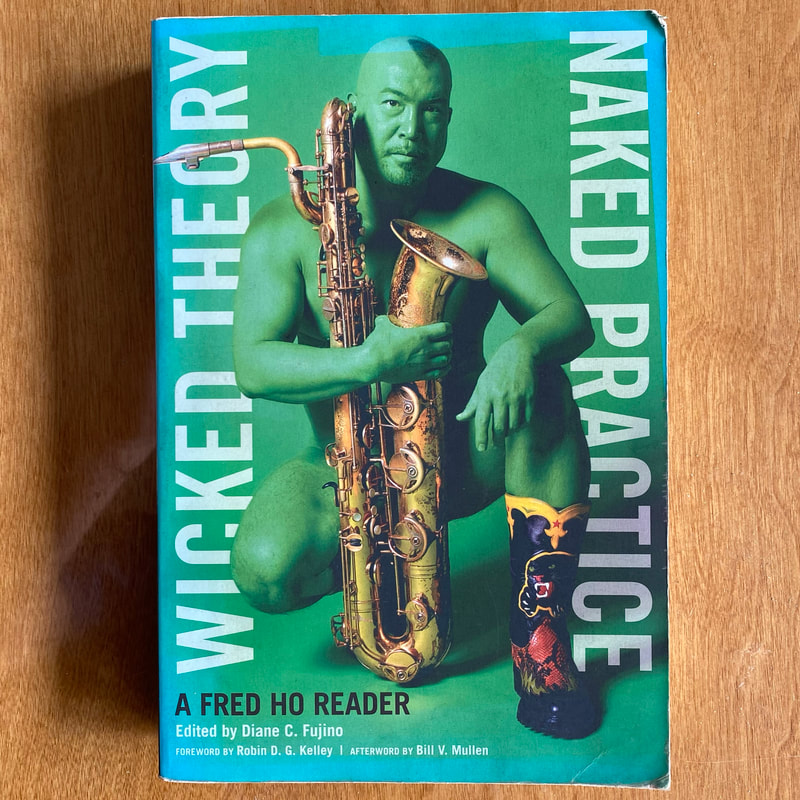
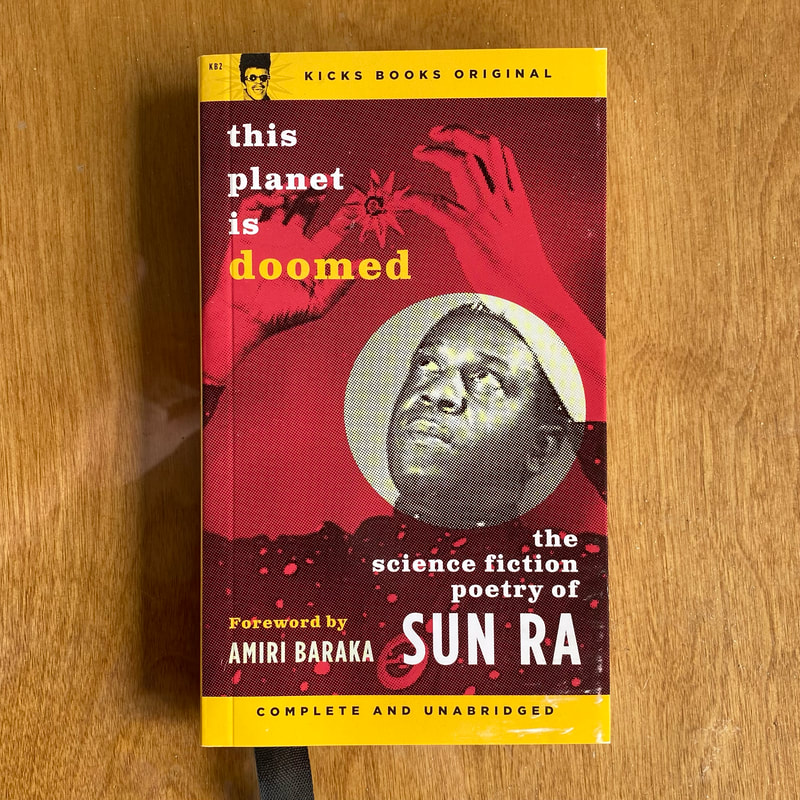
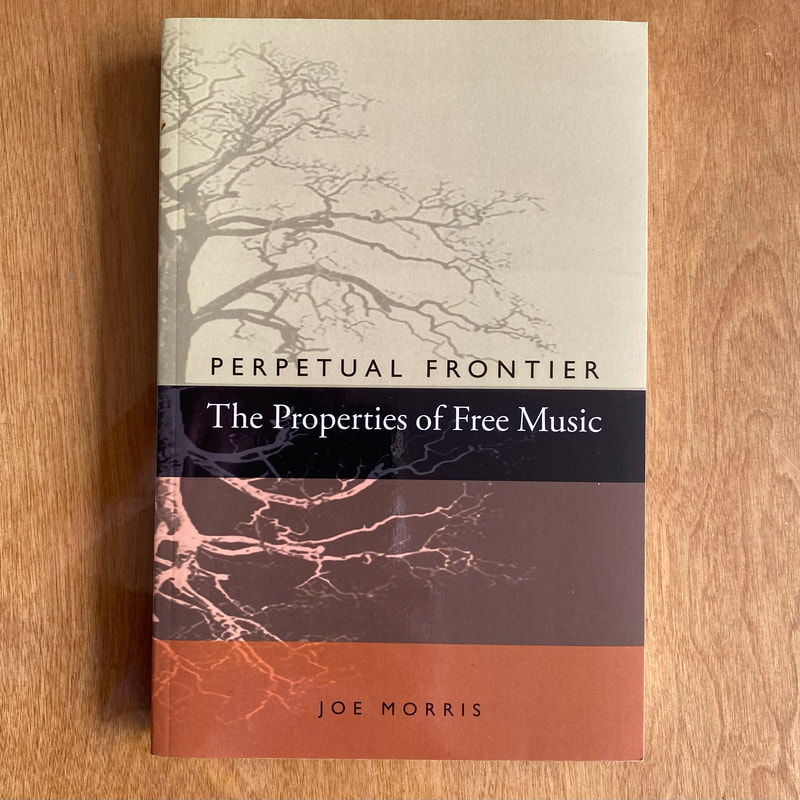
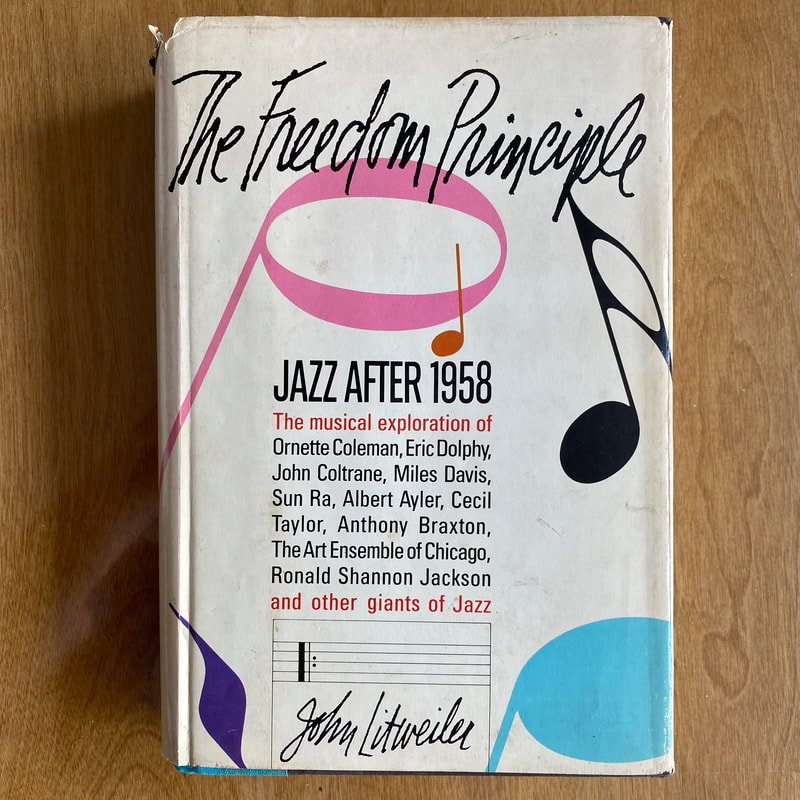
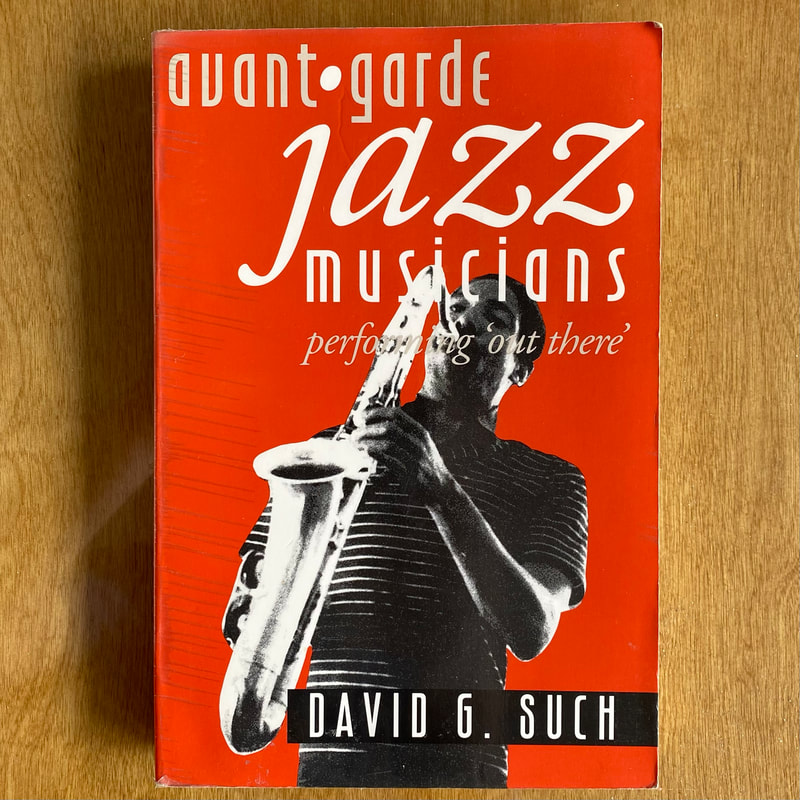
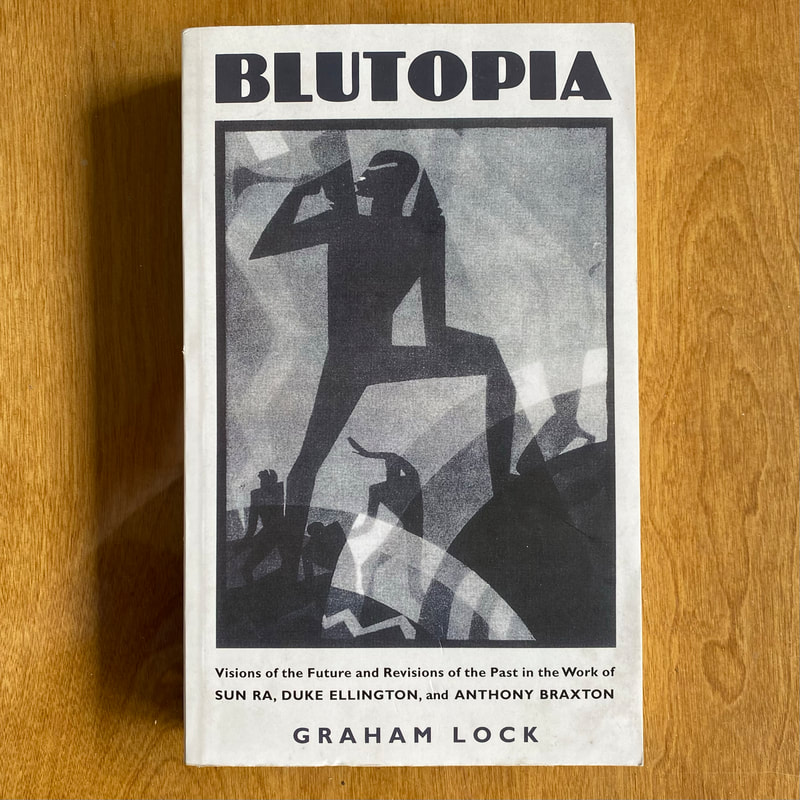
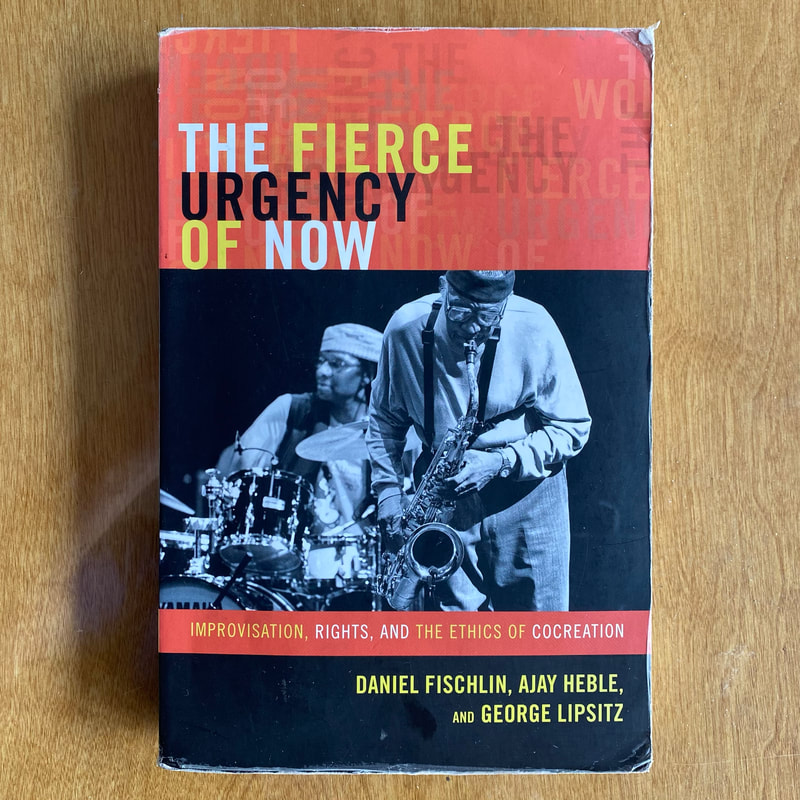
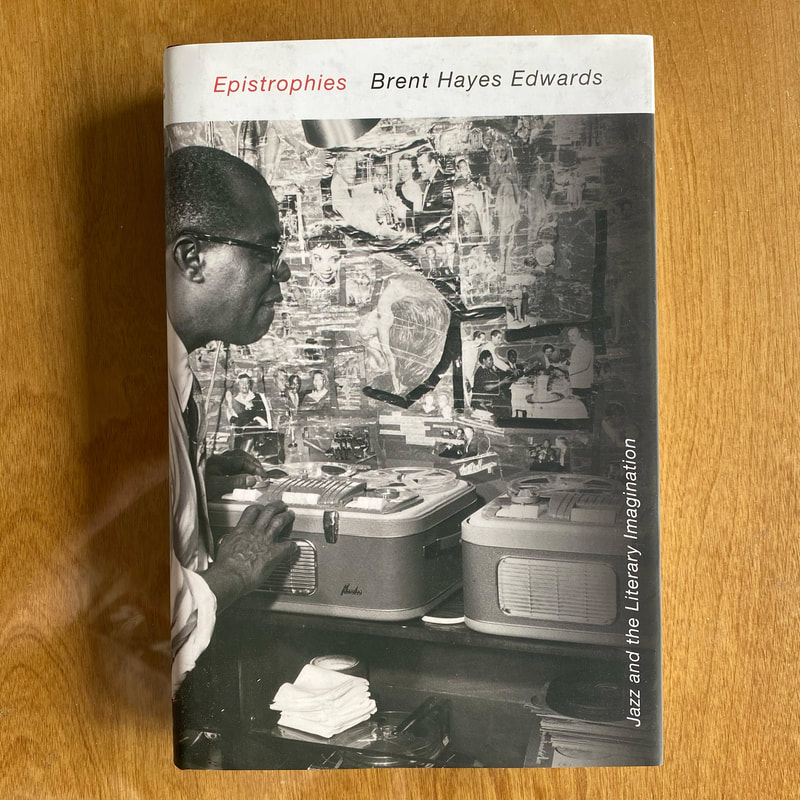
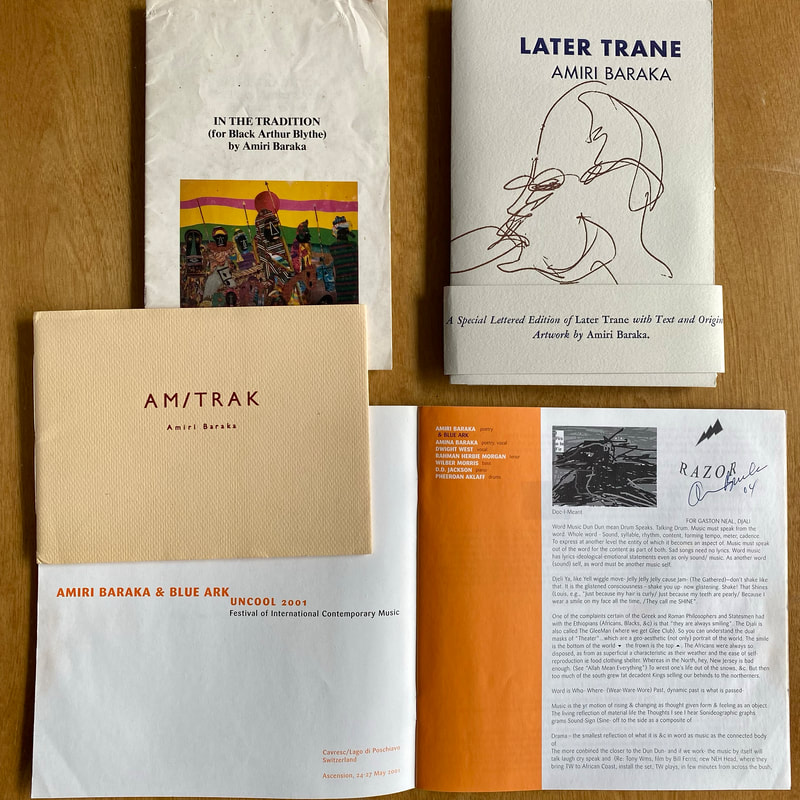
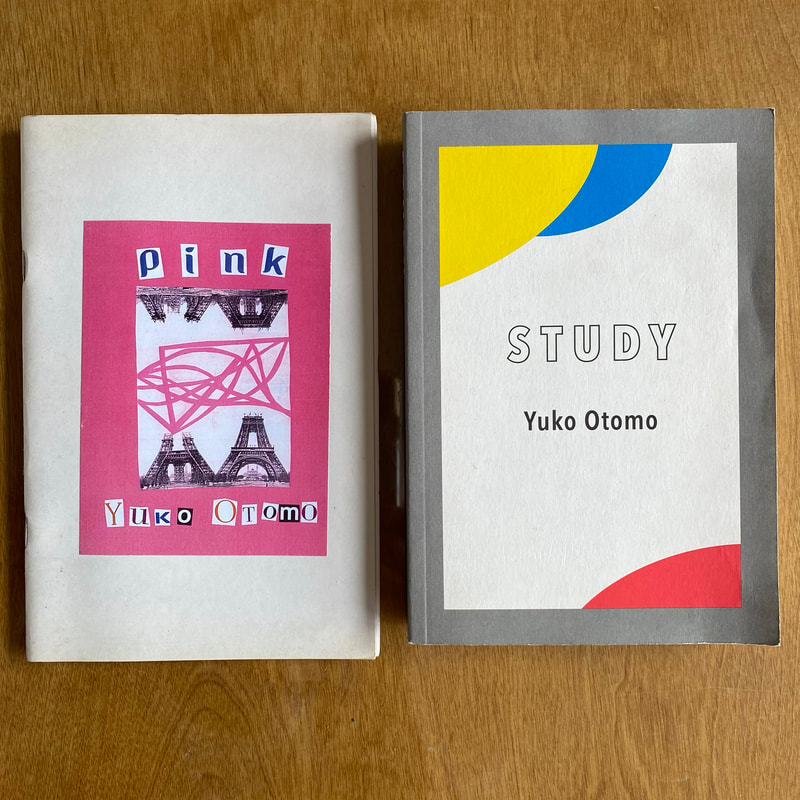
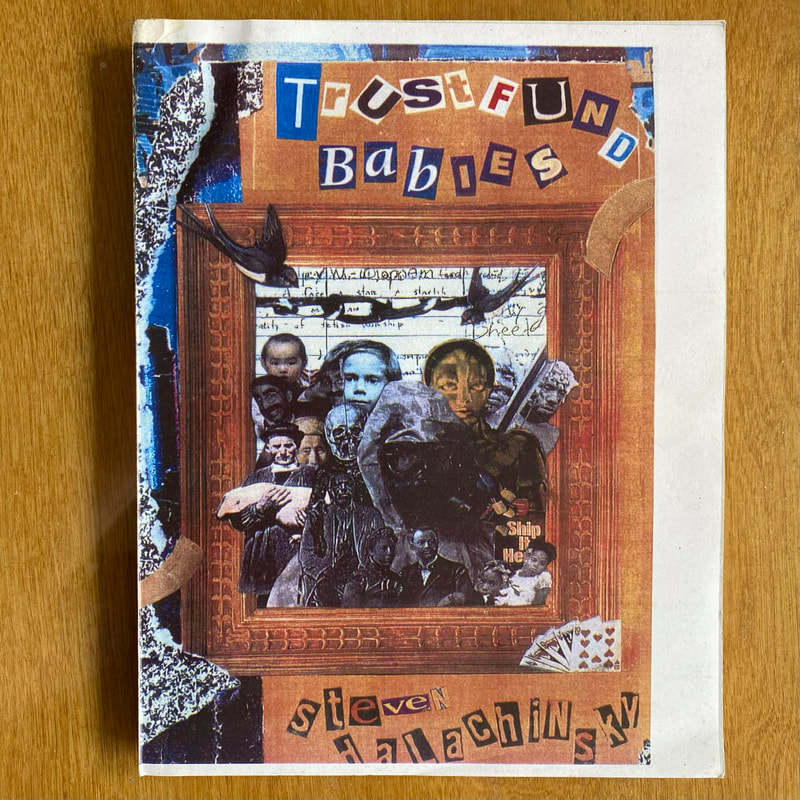
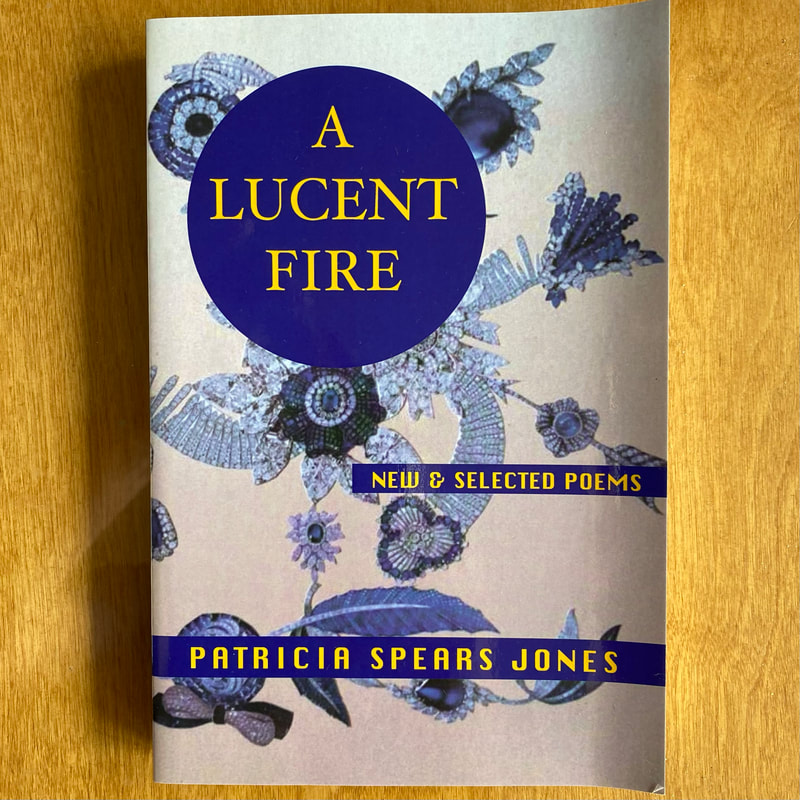
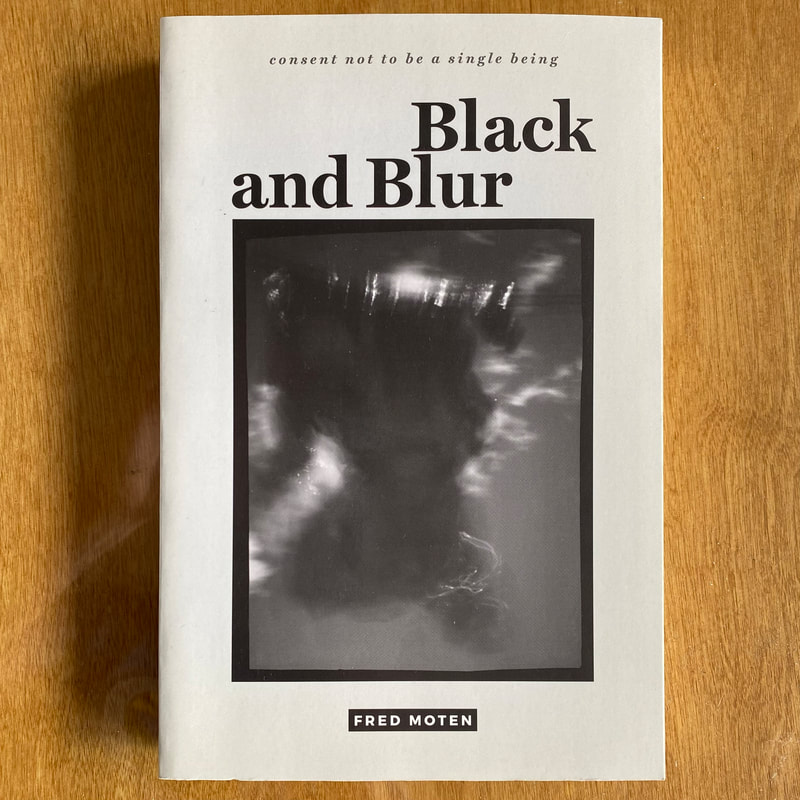
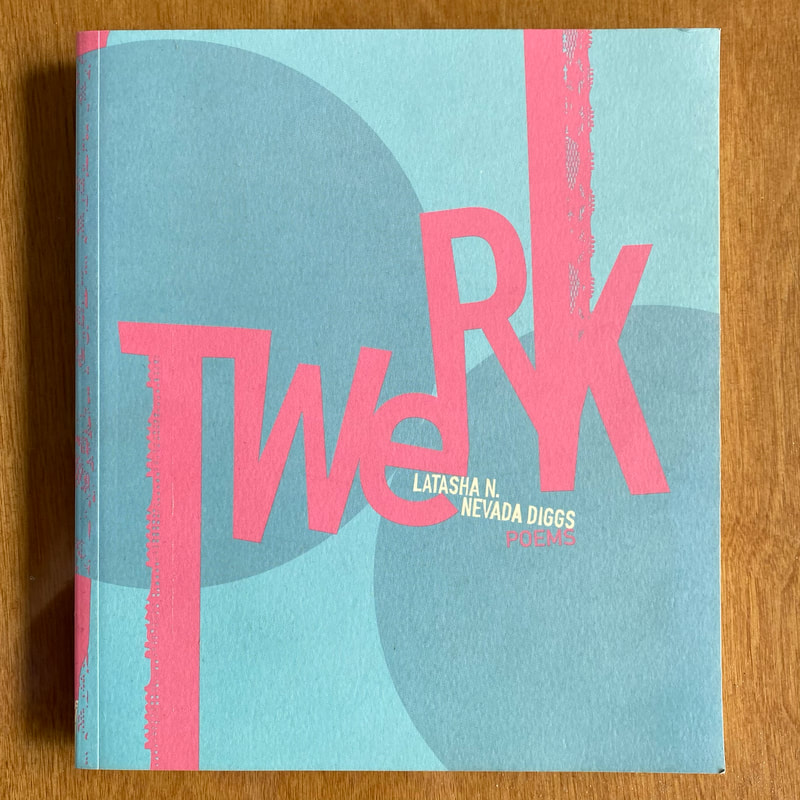
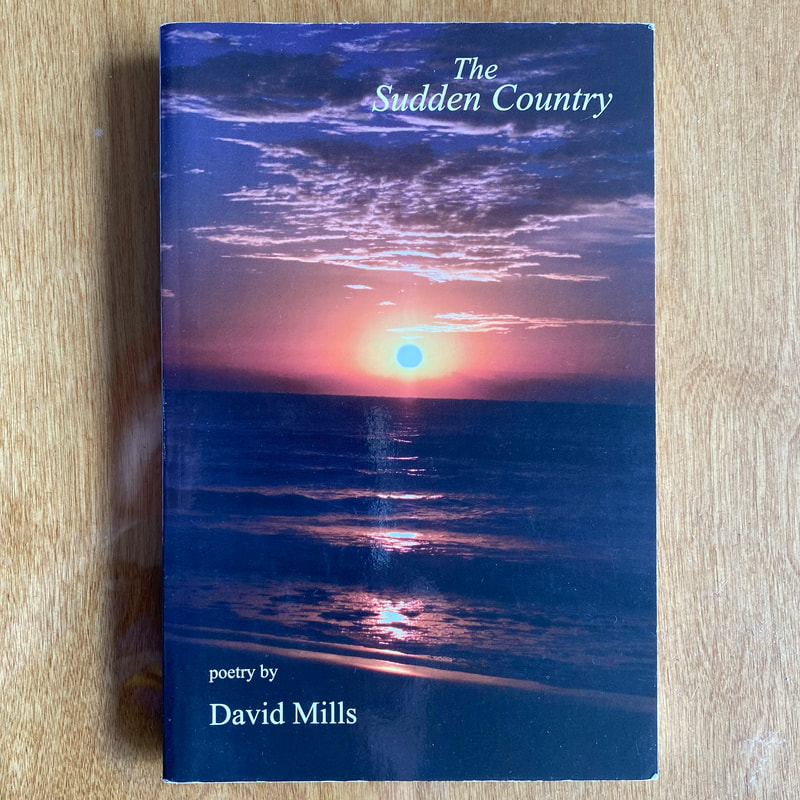
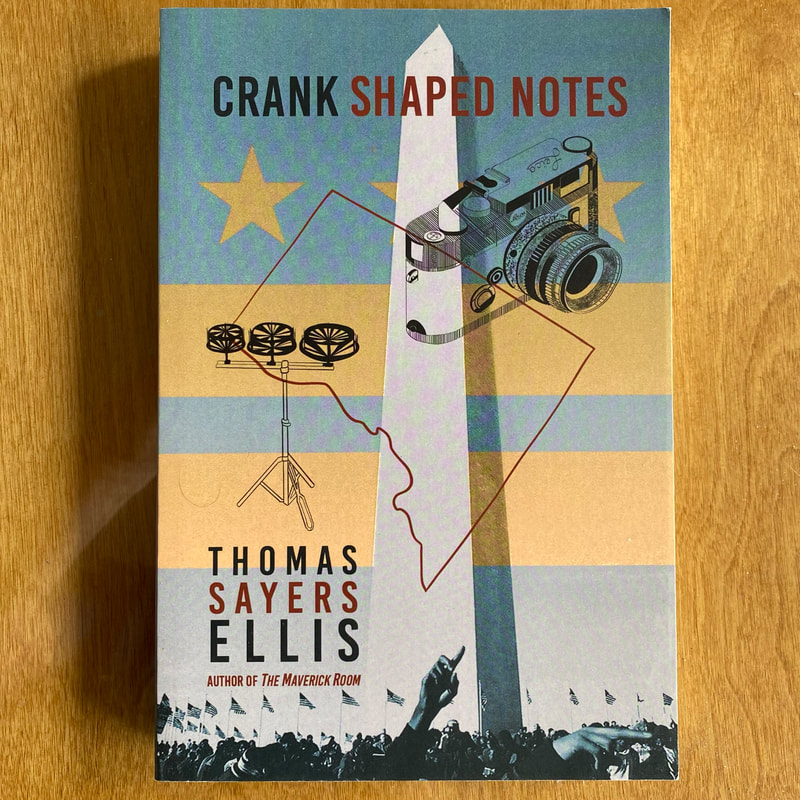
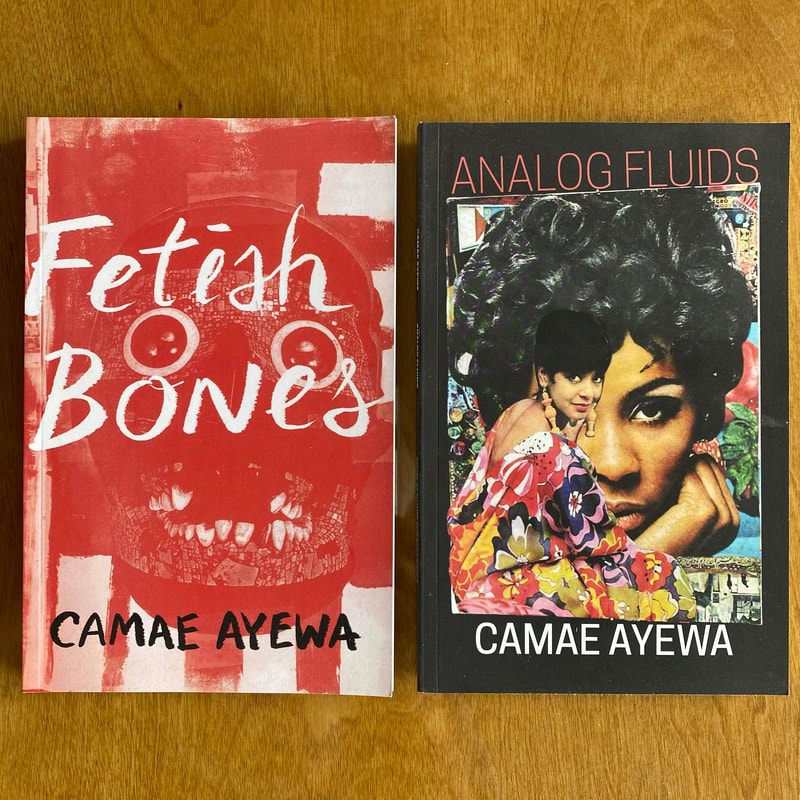
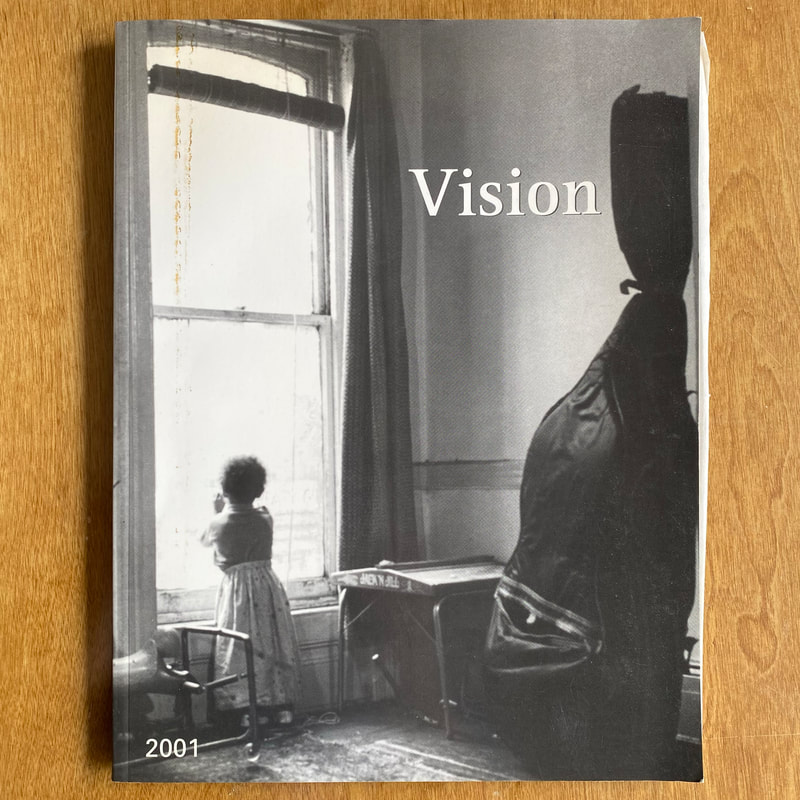
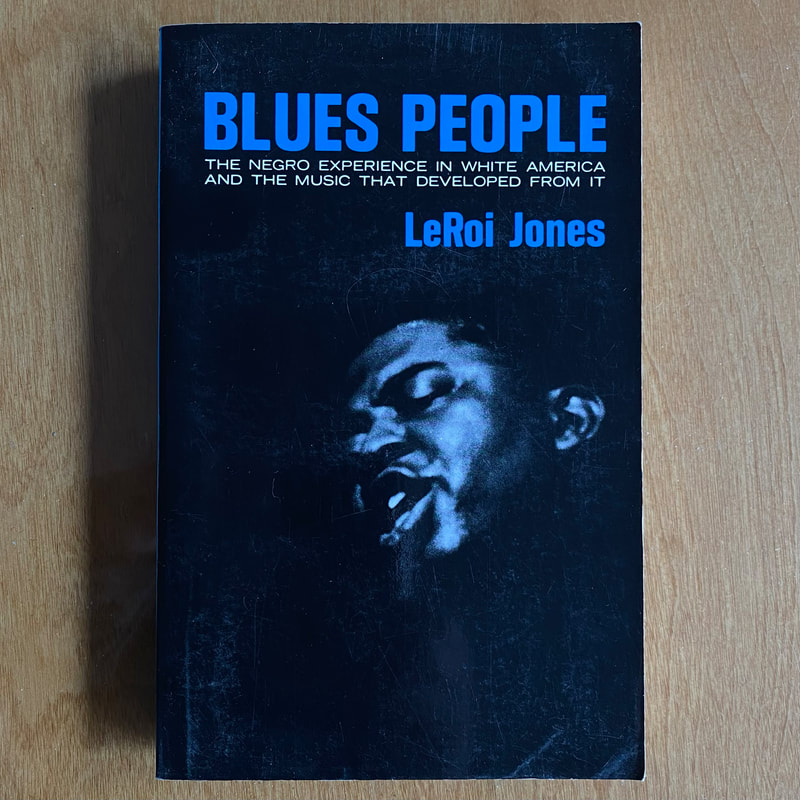
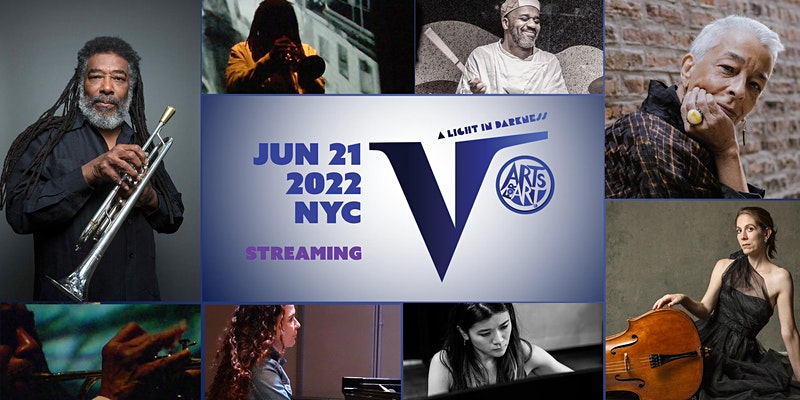
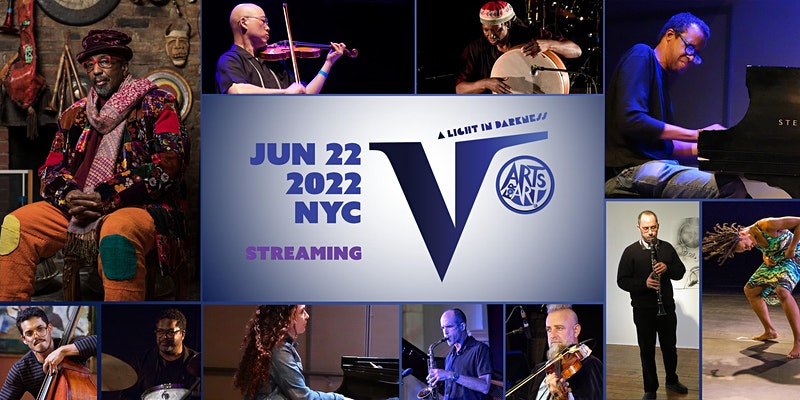
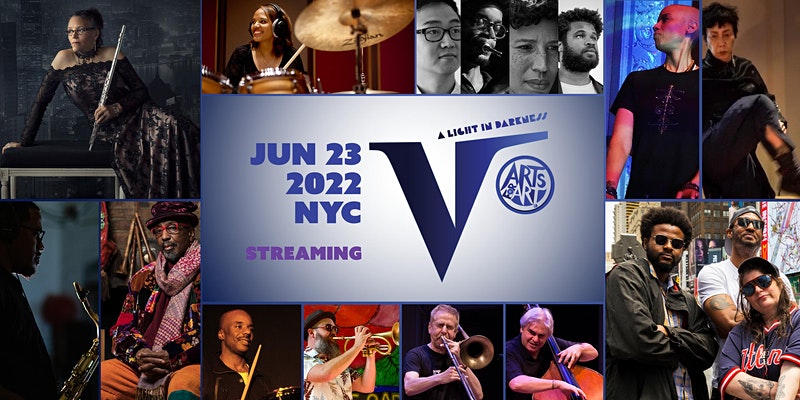
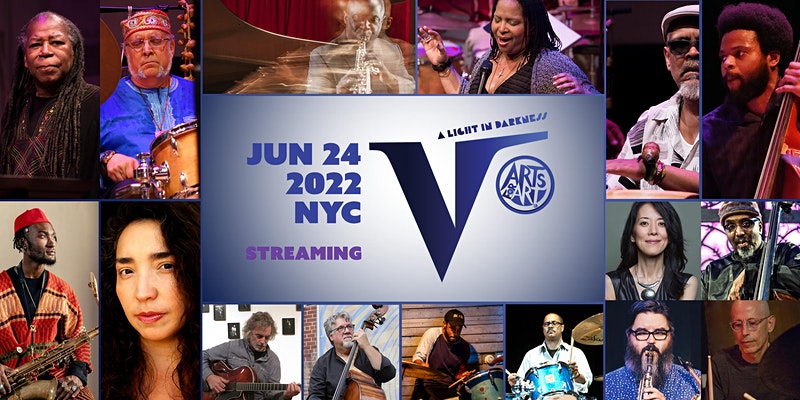
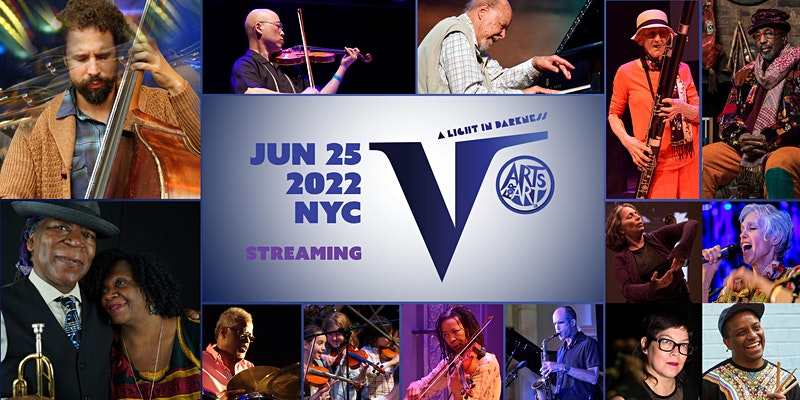
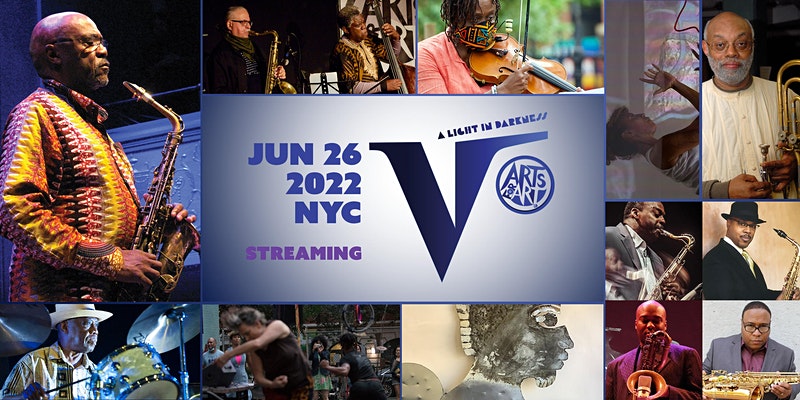
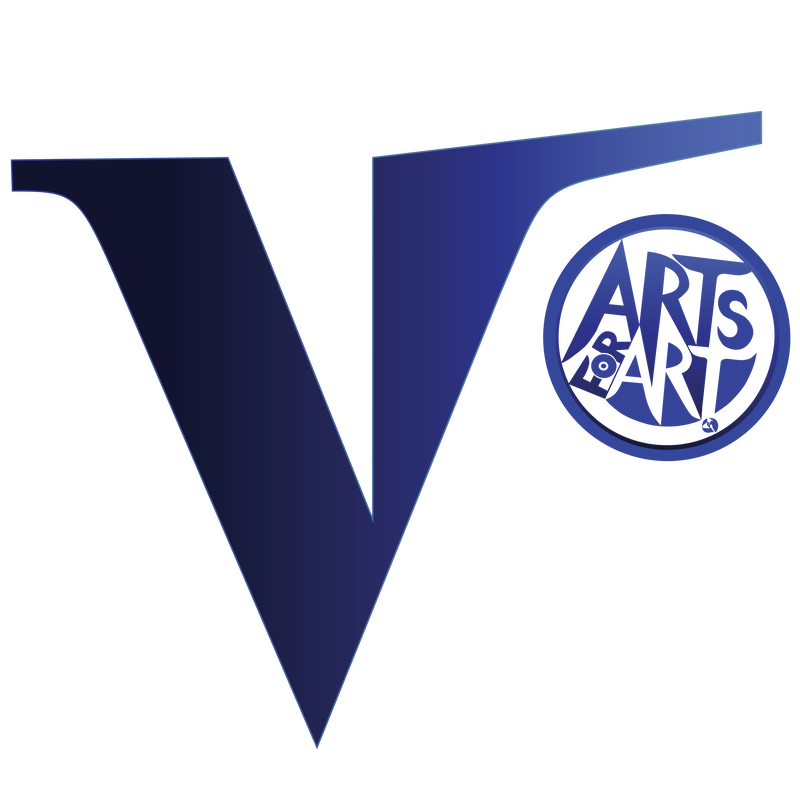
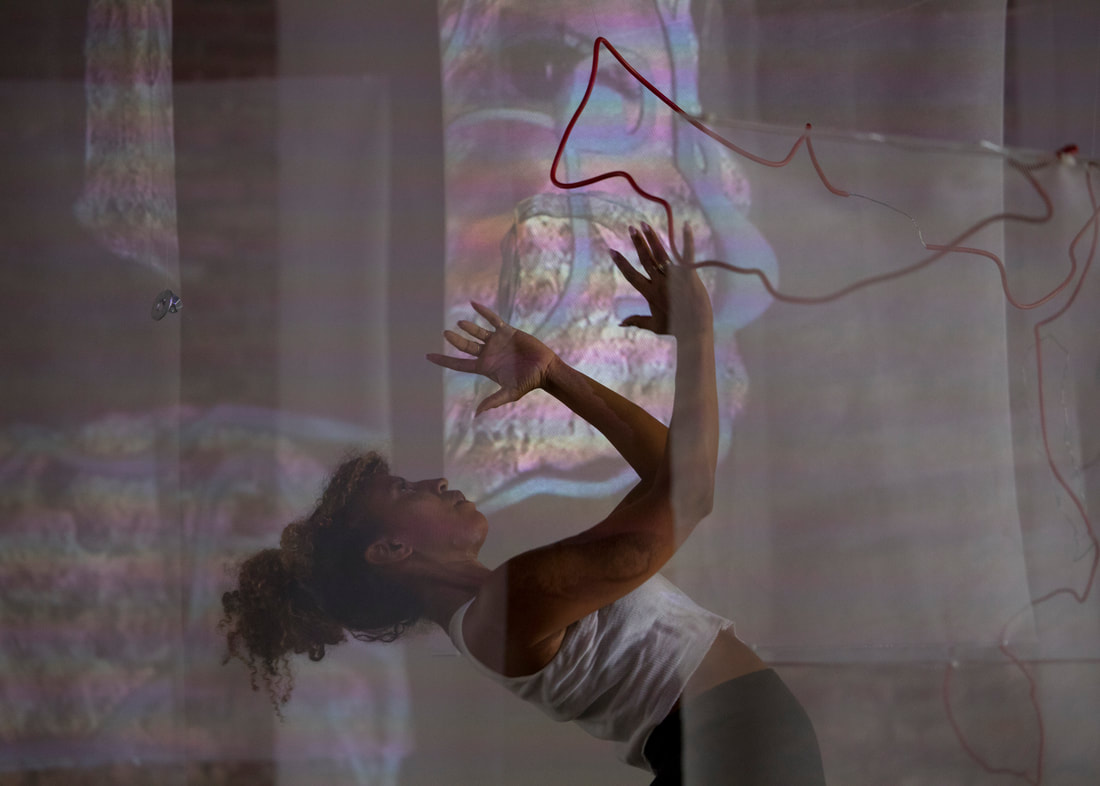
 RSS Feed
RSS Feed
